Hello and welcome to Work Week, the podcast where we tackle one big question about the rapidly evolving workplace, explore what the research says about the issue, and explain what it all means for you.
In this episode, we’re going to look at shifting workforce dynamics and why Gen Z especially is embracing what we call portfolio careers.
But first, I need to introduce myself! This is only the second episode of Work Week, and my first time hosting – I’m Dr. Gabby Burlacu, Senior Manager with The Upwork Research Institute. Or rather, what you’re hearing are my words, brought to you by a digital proxy of my voice, created by our team with the help of AI.
And that fusion of human-driven thought leadership, enabled with AI, is intentional. Our goal with Work Week is to help you—the business leaders and workers who are having to manage dramatically disruptive markets—keep pace with the rapidly changing labor market, while also showing how the latest tools create new ways of working and open new opportunities.
And these shifts in how work is getting done is something Gen Z is rapidly embracing. Older generations in the labor market—Baby Boomers especially, but also Gen X and Millennials—held careers that looked very different from today. Specifically, they started their careers with different technologies, economic realities, and opportunities, and this was reflected in how they approached their jobs as a fairly permanent arrangement after graduating from school, with career growth happening naturally over time.
But Gen Z—people born in the late 1990s through early 2010s—seems to be rewriting that script in a big way. Instead of sticking to one employer, many Gen Zers are juggling multiple projects, clients, or even part-time roles at once through non-traditional modes of work, like freelancing. It’s a one-to-many approach that’s redefining what it means to “have a career.”
What I want to look at today is why this is happening, and what it means for organizations that still rely on the traditional hiring model.
The latest data on Gen Z’s career preferences, according to Upwork’s Gen Z Work Requirements study, shows that more than 50% of Gen Z respondents say they’re already working with multiple employers or strongly considering it.
At the same time, nearly 70% of those surveyed value flexibility and autonomy over the traditional 9-to-5 corporate perks of a steady paycheck or a formal title. Plus, two-thirds believe that portfolio careers—holding multiple projects or client relationships—actually offer greater job security than a single employer.
In sum, this data shows that these shifts are more than a fad; they are a fundamental change in the labor market. Gen Z is embracing these new modes of working not as side hustles, but as a re-structuring of what a career can actually look like.
In our research, we also wanted to see if we could learn why Gen Z is so open to these changes, and four reasons stood out in our data:
- Desire for Flexibility
After the pandemic, a rigid 9-to-5 schedule is seen as a deal-breaker by over 60% of Gen Z respondents. One upshot of being forced to work from home was that people saw that working remotely worked. It helped them find work-life balance, without many of the negative effects their employers had worried about pre-pandemic. But it also widened the opportunity pool. In the 1970’s, 80’s, 90’s, and even into the 2000’s, people were largely limited in their job opportunities by where they lived or were willing to move. But high-speed internet and mobile technology have opened up a world of work for people willing to embrace it. - Technological Enablement
Following the advent of high-speed internet and the proliferation of mobile technology, platforms like Upwork entered the market, enabling connections with global clients and making invoicing and billing easy. At the same time, platforms like Etsy, eBay, and Amazon Marketplace allow people to work in multiple sectors and pursue their many passions. - Alignment of Professional and Personal Values
Gen Z is all about aligning work with personal values—be it environmental advocacy, creative pursuits, or tech solutions. Research shows that this is the most diverse generation in terms of race and ethnicity, ever. Gen Z workers want their individuality and values reflected in the companies they choose to do business with, and many feel they increase their chances of achieving this by working with more than one employer. - Economic Pragmatism
Where previous generations felt more security with a single employer and the benefits that employer provided, Gen Z feels more confident holding multiple projects from many clients. This lets them work on projects they find rewarding, while also hedging against layoffs or sudden changes that might happen in a single company.
In a labor market that’s seen as many changes as Gen Z has seen, it’s no wonder they’re choosing to diversify. Many in this generation are old enough to remember the recession of 2007-2009. As they graduated high school, they faced the ballooning costs of higher education and housing. And with the COVID-19 pandemic, they saw both how insecure the job market could be, as well as how to mitigate some of those risks.
Today, instead of putting all their eggs in one employer’s basket, they’re spreading out their risks and their opportunities.
This brings some major advantages, like:
- Skill Diversification: Multiple projects drive faster skill development. They can choose to take some work that reinforces skills they’re already proficient in, while at the same time taking roles that push their boundaries and get them outside of their comfort zone.
- Greater Ownership: They can build personal brands across different networks. This might include networks in the same industry, or they could even reach out into entirely different sectors of the economy; they are only limited by their willingness to try.
- Lifestyle Choices: Some travel or pursue passion projects while still earning a living. Working remotely often means being able to work where and when it makes the most sense for the person rather than the employer. The work still gets done, and because the worker is happier and feels more fulfilled, it often gets done better.
But it’s not all unicorns and rainbows. Some of the challenges of this career choice include:
- Lack of Traditional Benefits: No built-in healthcare, paid time off, or retirement matching. A portfolio career means budgeting differently for vacations, doctor appointments, holidays, and even retirement. And in the US, it means finding insurance on the open market.
- Risk of Burnout: Managing several clients can be overwhelming. Independent professionals have to learn the skill of setting boundaries, and need to find the right tools and platforms to help them juggle multiple ongoing projects, clients, and communication channels.
- Isolation: While many people find portfolio careers and remote work freeing, some miss the camaraderie of a single workplace. While the data shows that in-office and remote workers experience feelings of isolation at similar rates, remote workers have no opportunity for a chance encounter with a friend in the break or at the elevator. Creating virtual spaces in Zoom and Slack, or finding a coworking space to replicate that at-the-office feel can help.
The data shows Gen Z is willing to handle the complexities of these downsides for the sake of autonomy, control, and a stronger sense of personal agency.
Okay… so that’s a big-picture view of portfolio careers from the workers’ perspective. Now let’s shift our focus from the individuals to the companies. And specifically let’s look at companies that hope to stick to traditional employment models, because they’re facing some pressing questions.
A key concern for leaders who don’t like these shifts in the workforce is talent acquisition: If the next generation of workers, Gen Z, wants more flexible arrangements, companies may need to hire specialized freelancers for project-based roles, or else they will soon find themselves with a very limited talent pool.
What these trends don’t mean is that a company’s workforce will be completely made up of part-time freelancers. For many companies, the solution will look like having a core group of full-time employees—maybe some working remotely and others on-site—and then supplementing that workforce with specialists. These specialists might come in for a single project, or only work for a limited number of hours each week… those arrangements can be flexible, to meet the needs of both the company and worker.
But once talent acquisition is solved, retention becomes the next puzzle. Standard career ladders might not cut it if Gen Z sees more variety and faster growth opportunities outside of a single employer. Internal gig marketplaces or rotational programs could help mimic that portfolio feel.
At the same time, contracts with independent professionals can include periodic pay increases and inclusion in company-sponsored events. This can help build lasting professional relationships as well as a sense of camaraderie with the in-house team. This won’t replace the static workforce from previous generations, but can help create a more cohesive and stable workforce.
A third major concern for companies as the workforce continues to shift is culture. If a company can’t offer remote or hybrid work options, flexible hours, and meaningful growth tracks, Gen Z may head for the exit. Especially as older generations leave the workforce, companies may need to adjust their workplace culture and expectations in order to meet mission-critical objectives.
While technology can provide the tools to enable these changes, technology alone isn’t enough. For many companies, how work is structured, valued, and delivered will have to change.
And that leads us to our regular wrap-up segment: one action and one reflection.
While it’s natural to be leery of change, the beautiful thing about working with portfolio talent is that their work can be folded into a company’s practices in incremental ways. You don’t have to make a dramatic change in how you do business to realize dramatic benefits from this new way of working.
- You can start by breaking a single big project down into smaller, modular parts that freelancers or rotating teams can tackle. Develop this in a way that is accessible and shareable, such as using Kanban boards or other project management tools.
- Use this as an internal “talent marketplace” so full-time staff can explore varied roles or client-facing work without leaving the organization. As you add more projects to this system, you’ll find talent and interests that you didn’t know your team had, and also be able to identify areas where you can supplement your team’s skills, either with continuing education programs or by contracting outside help.
- Encourage cross-department skill-sharing to keep the environment dynamic and appealing for employees who crave variety. This can both help your employees feel more fulfilled and supported, and also create a robust workforce with the agility to tackle many different challenges.
No matter how we feel about it, the markets are changing. For listeners who are intrigued at the idea of portfolio work, but intimidated at the prospect, I encourage you to ask yourself: “Could a portfolio approach—juggling diverse projects—boost my career resilience and personal fulfillment?”
- If yes, create a timeline or roadmap for transitioning into freelance or part-time roles.
- If no, look for ways to bring more variety into your current job, whether through side projects, cross-functional teams, or new skill development.
It’s not one-size-fits-all. But given the data, it’s smart to at least consider how this emerging model might fit—or not fit—your personal career goals.
And that’s it for today’s episode of Work Week. We looked at why Gen Z professionals are moving from a single-employer model to a one-to-many portfolio career, and explored what that means for all of us.
Research from Upwork’s Gen Z Work Requirements study shows that flexibility, diverse experiences, and autonomy are key. Whether you’re an employer trying to adapt or an individual weighing your options, this shift has real implications for the future of work.
If you found this episode insightful, share it with a friend or colleague, and be sure to subscribe to Work Week for more on how our workforce is evolving.
I’m Gabby Burlacu, reminding you that the future of work belongs to those willing to reshape it—whether that means having one employer or many.







.png)
.png)
.png)
.png)
.png)
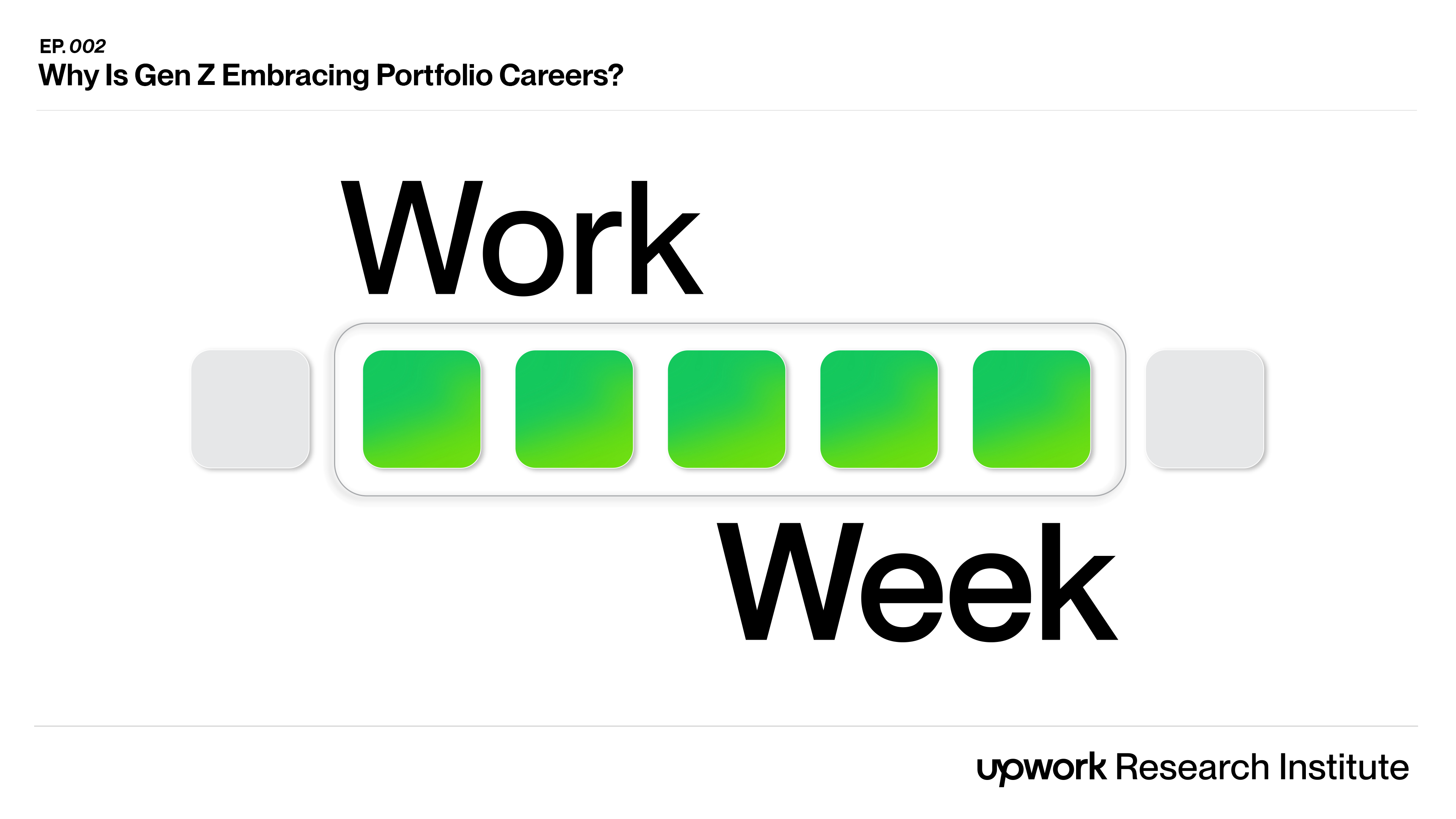


.png)

-p-500.jpg.png)
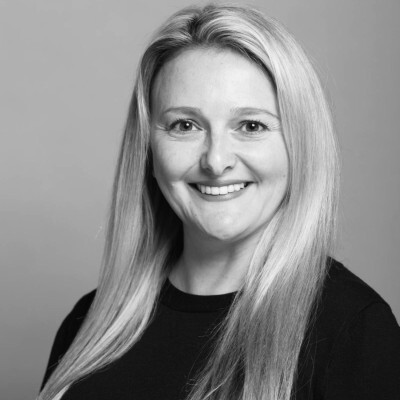
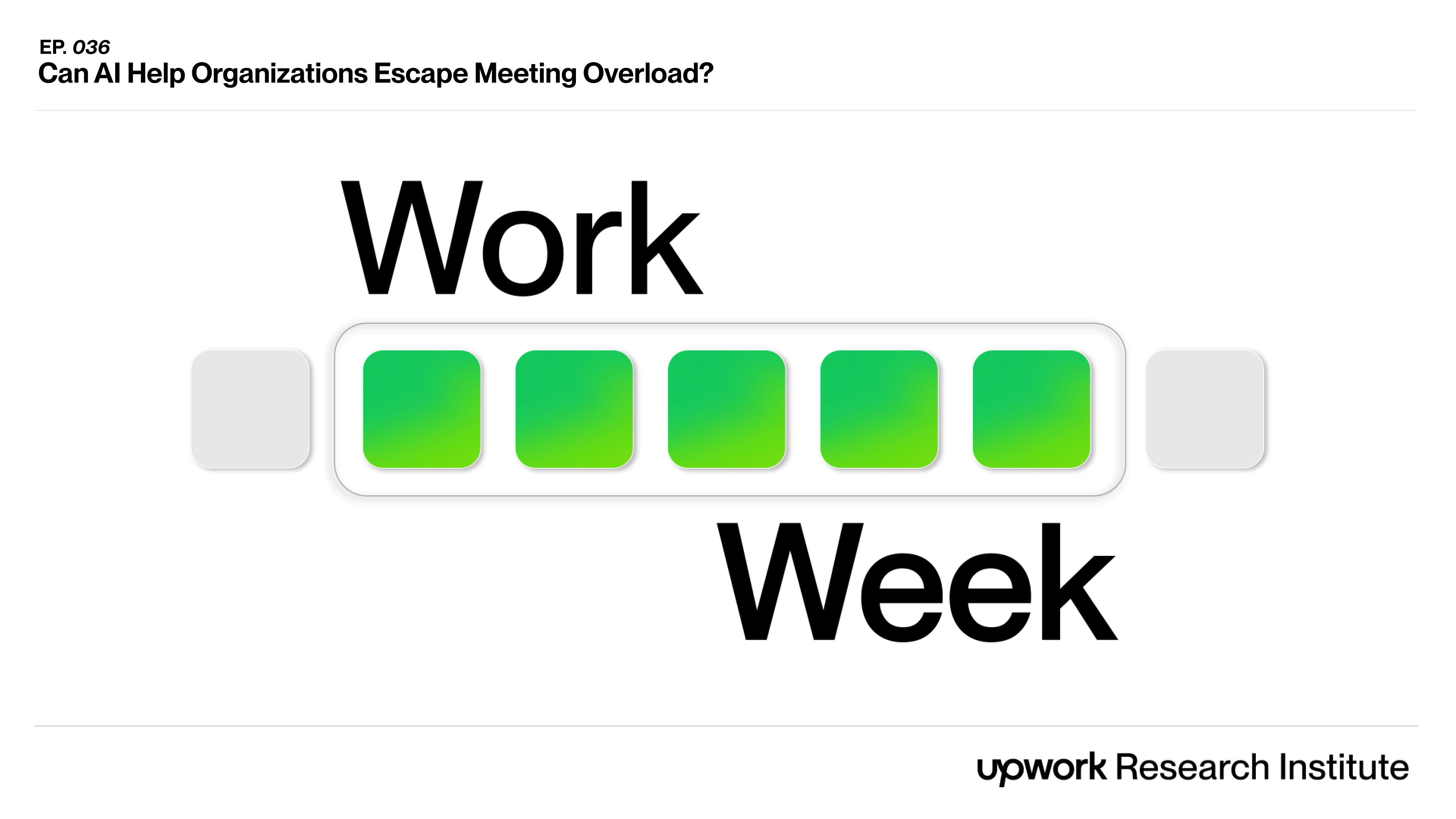

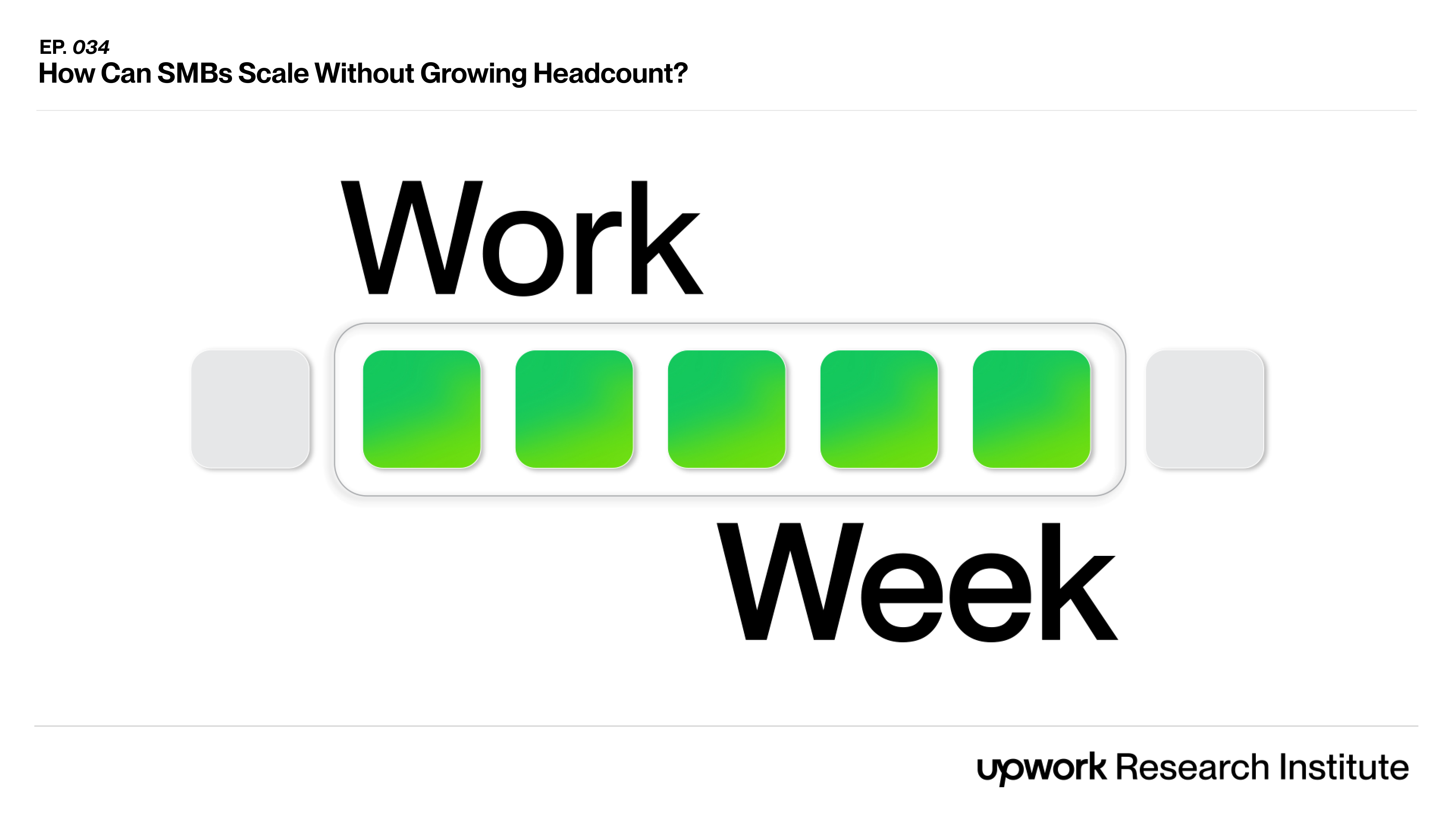
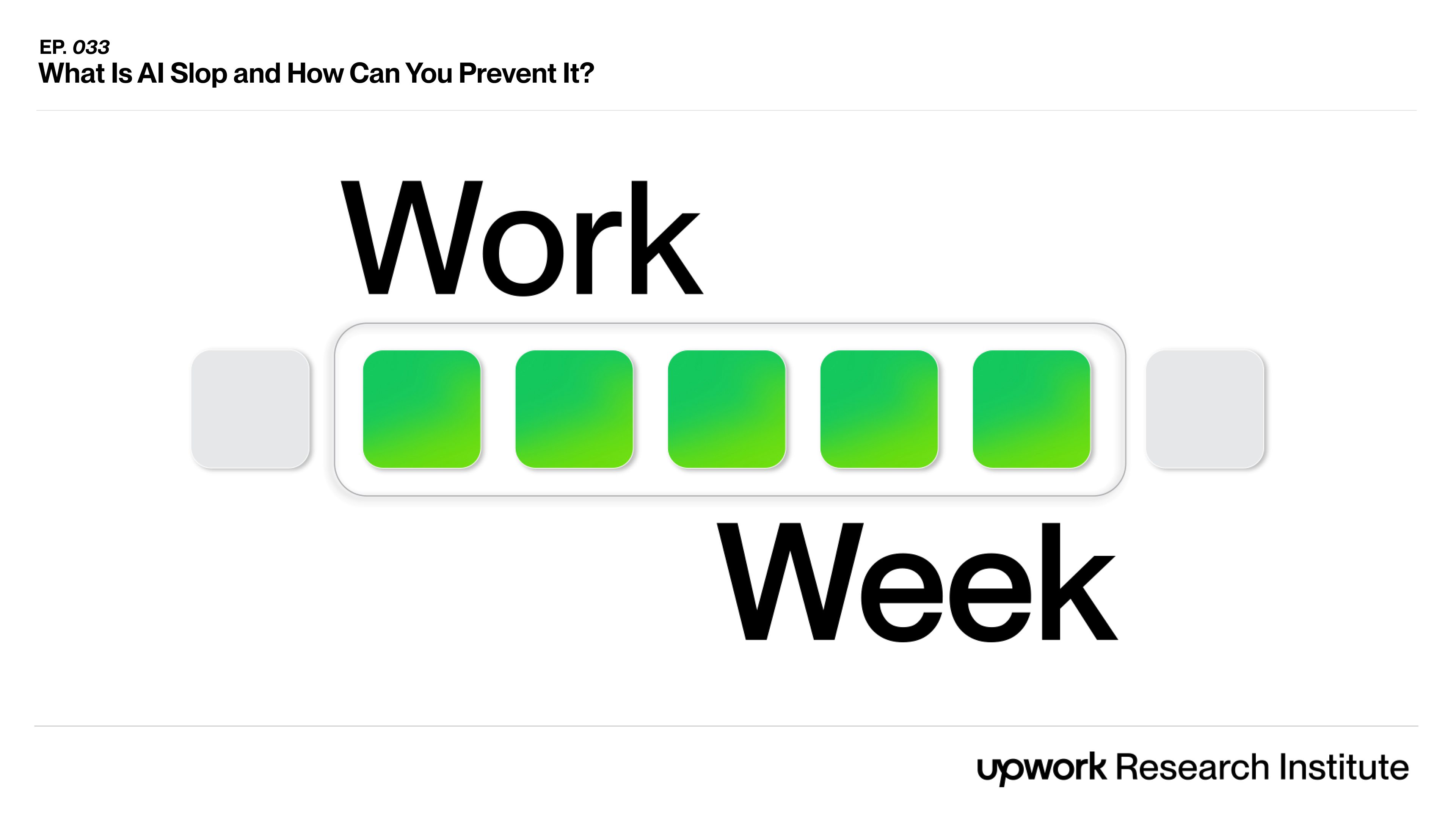
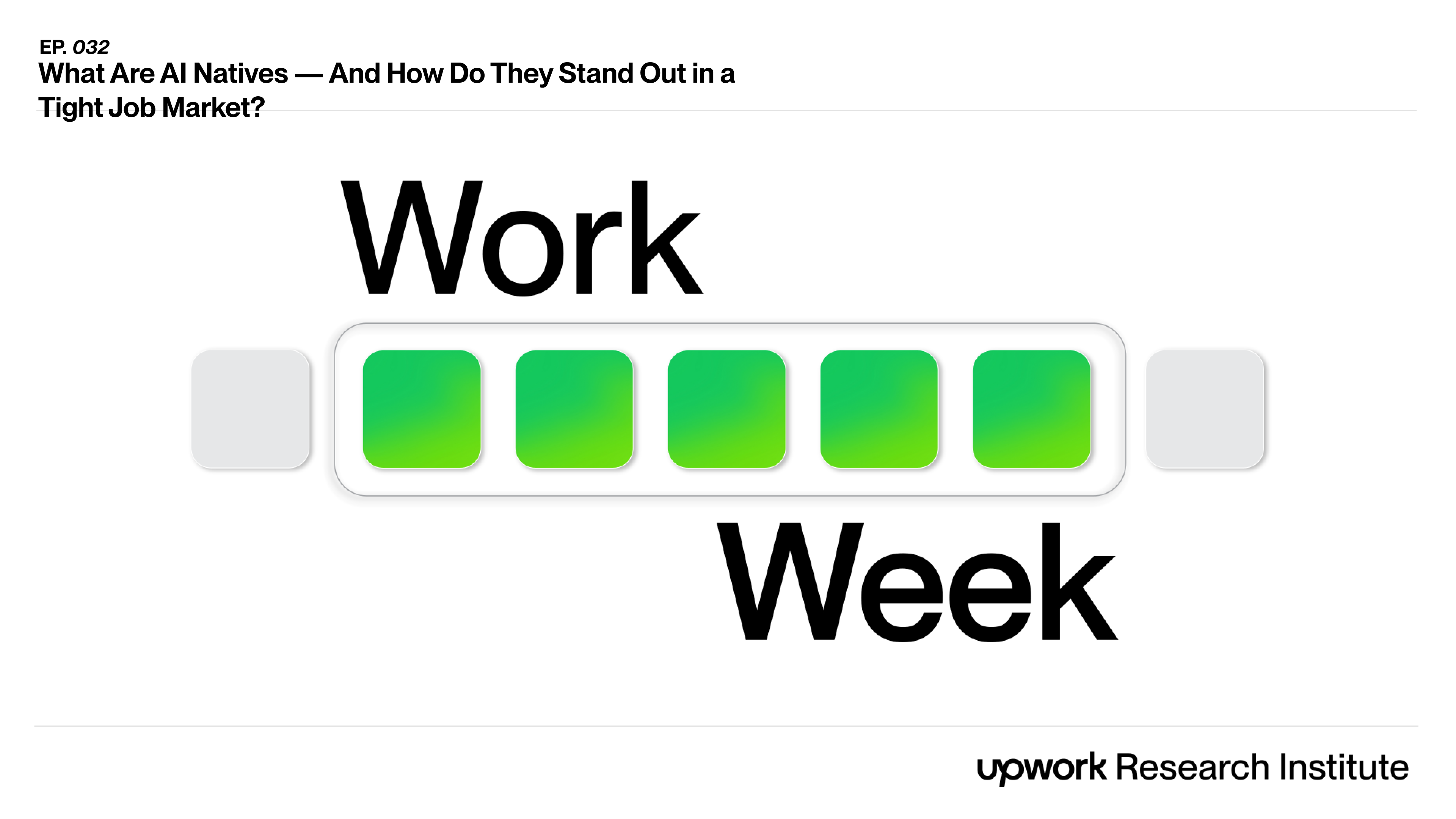
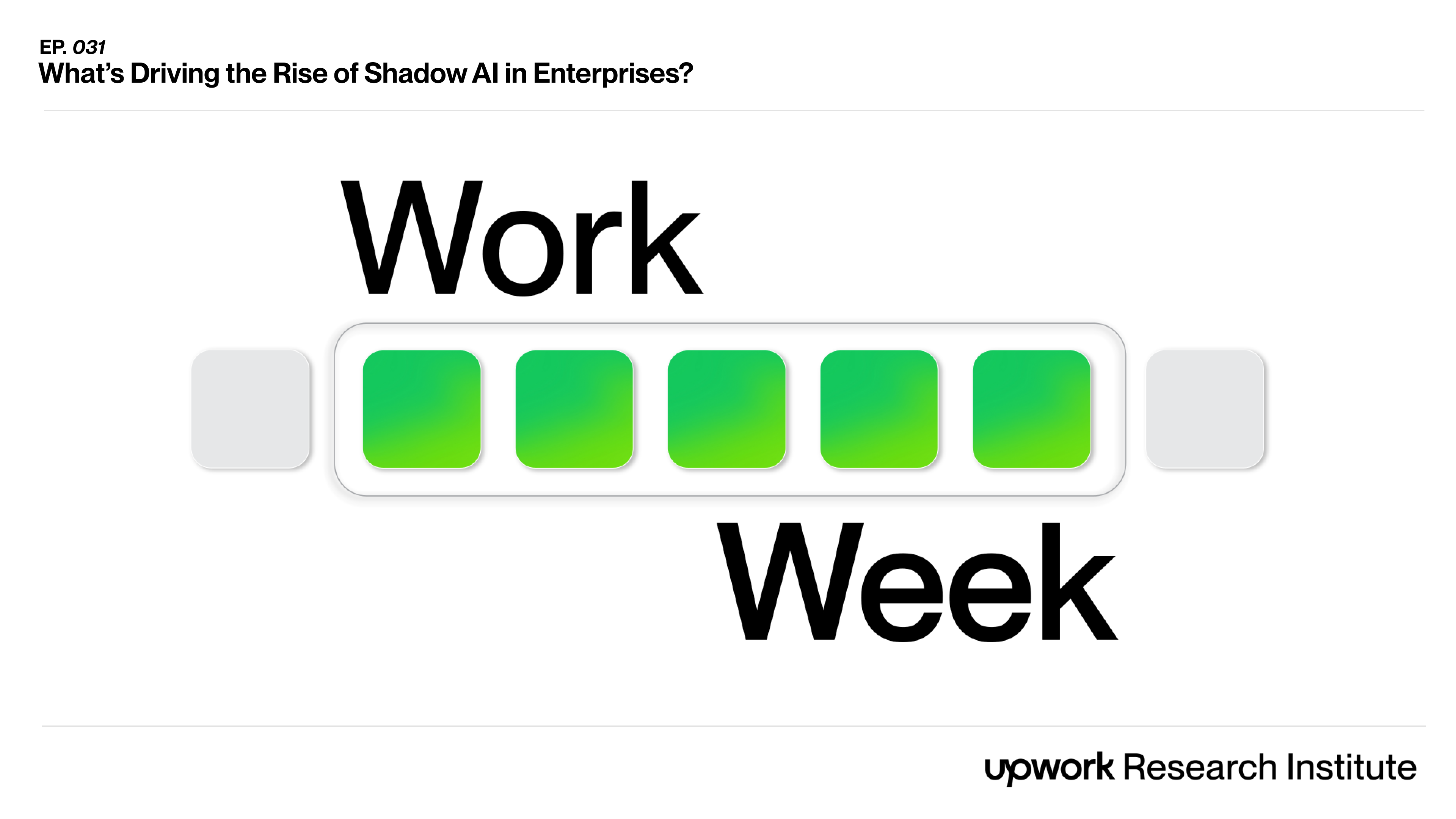
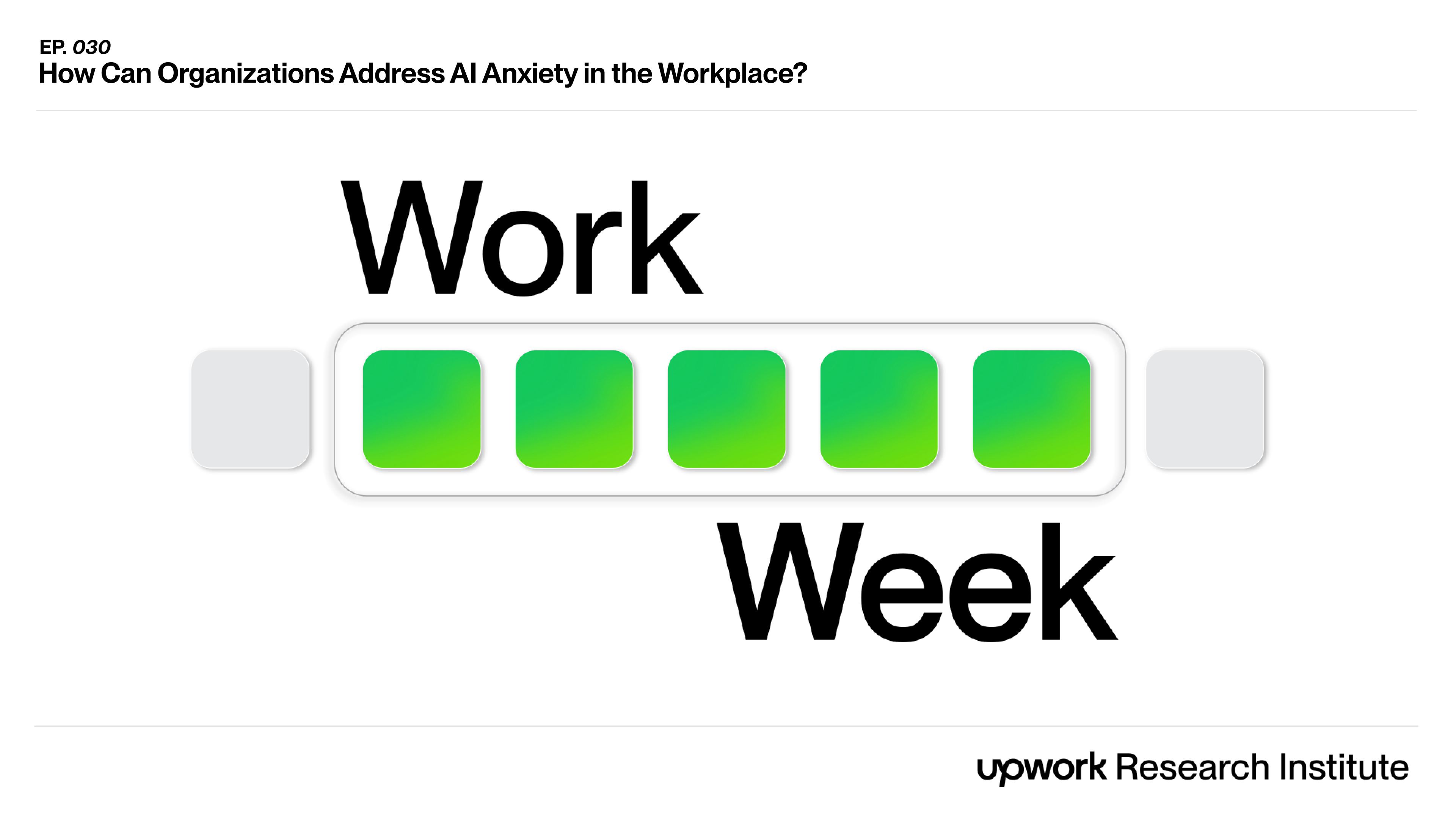
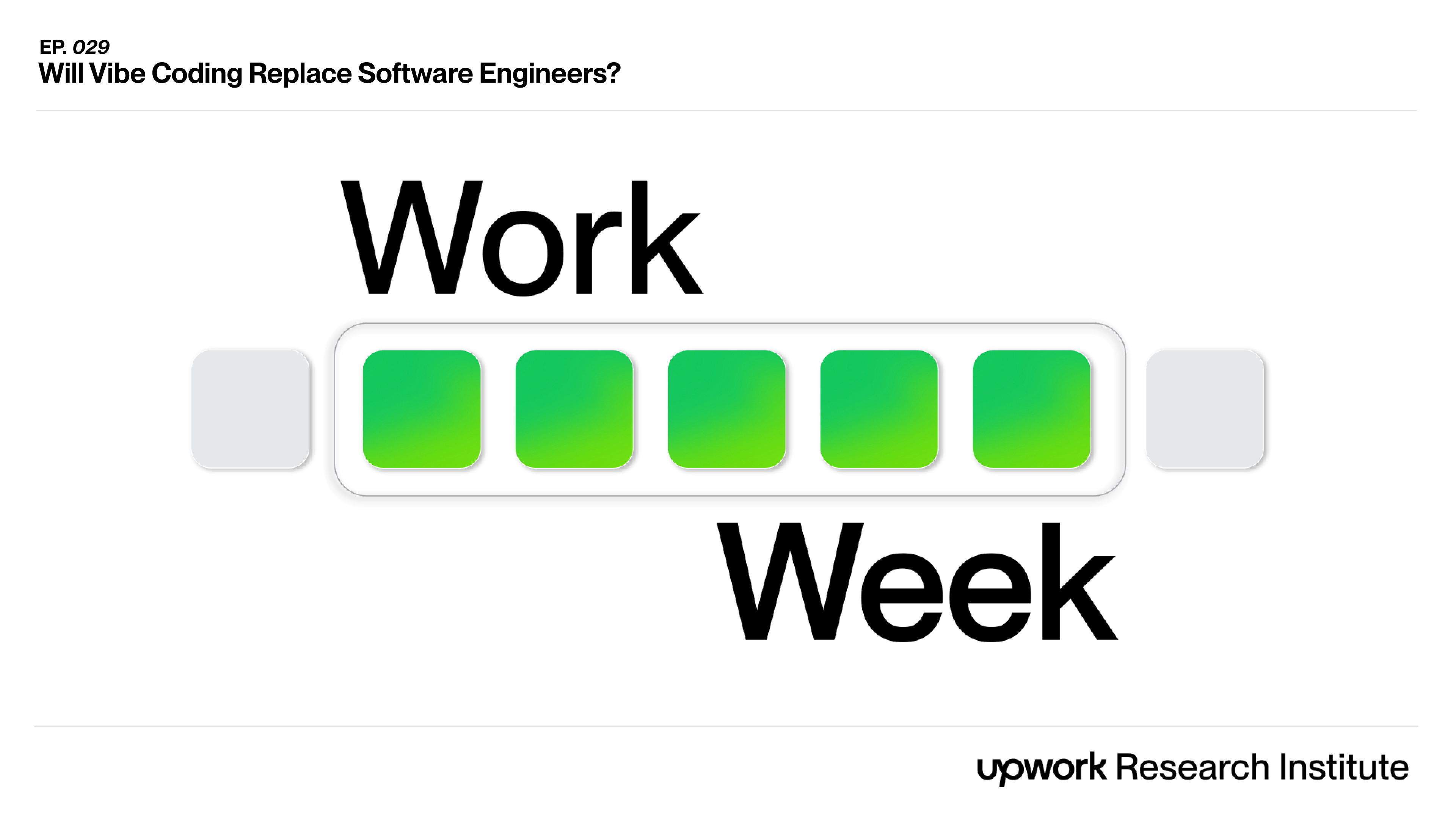
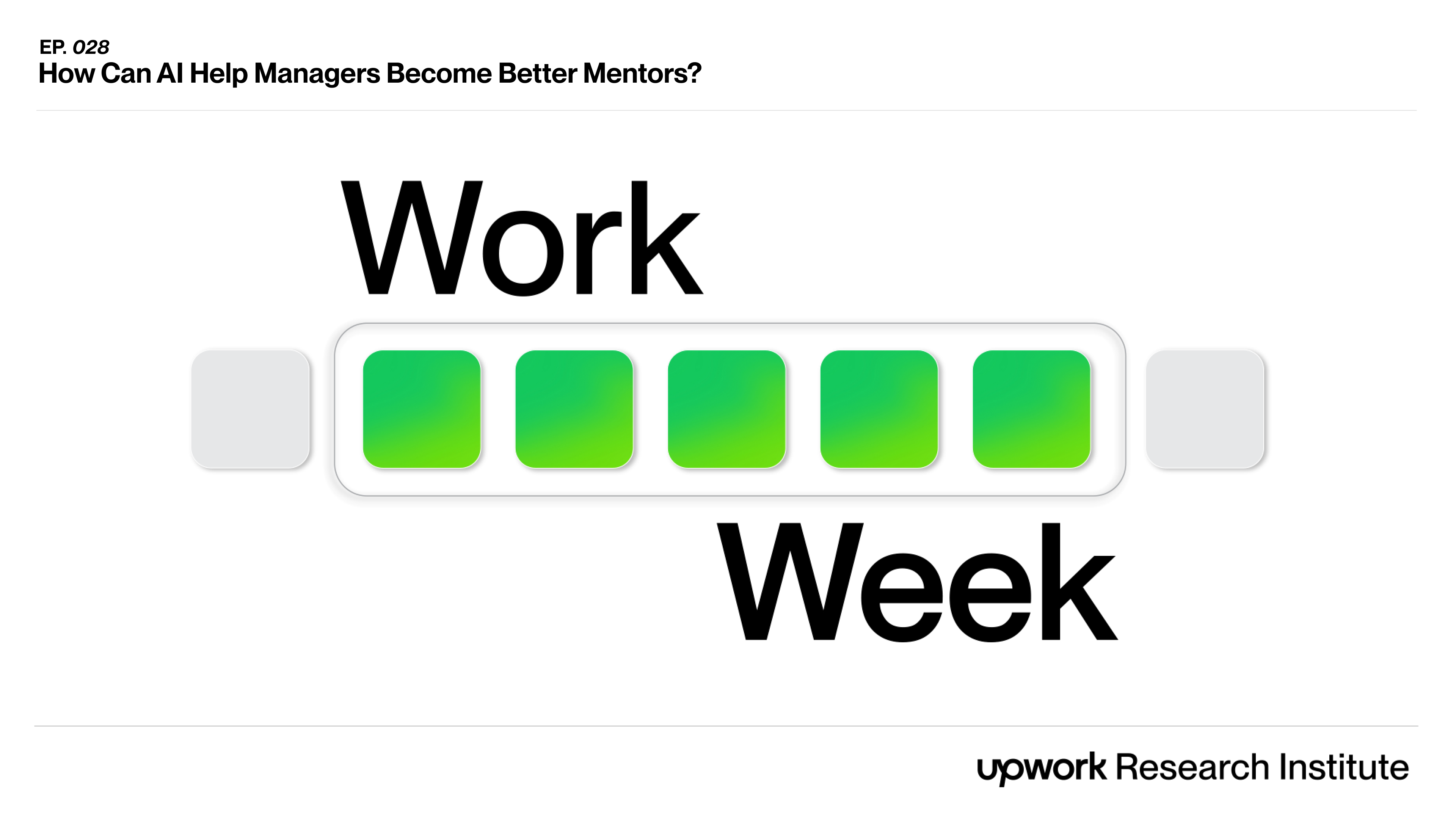

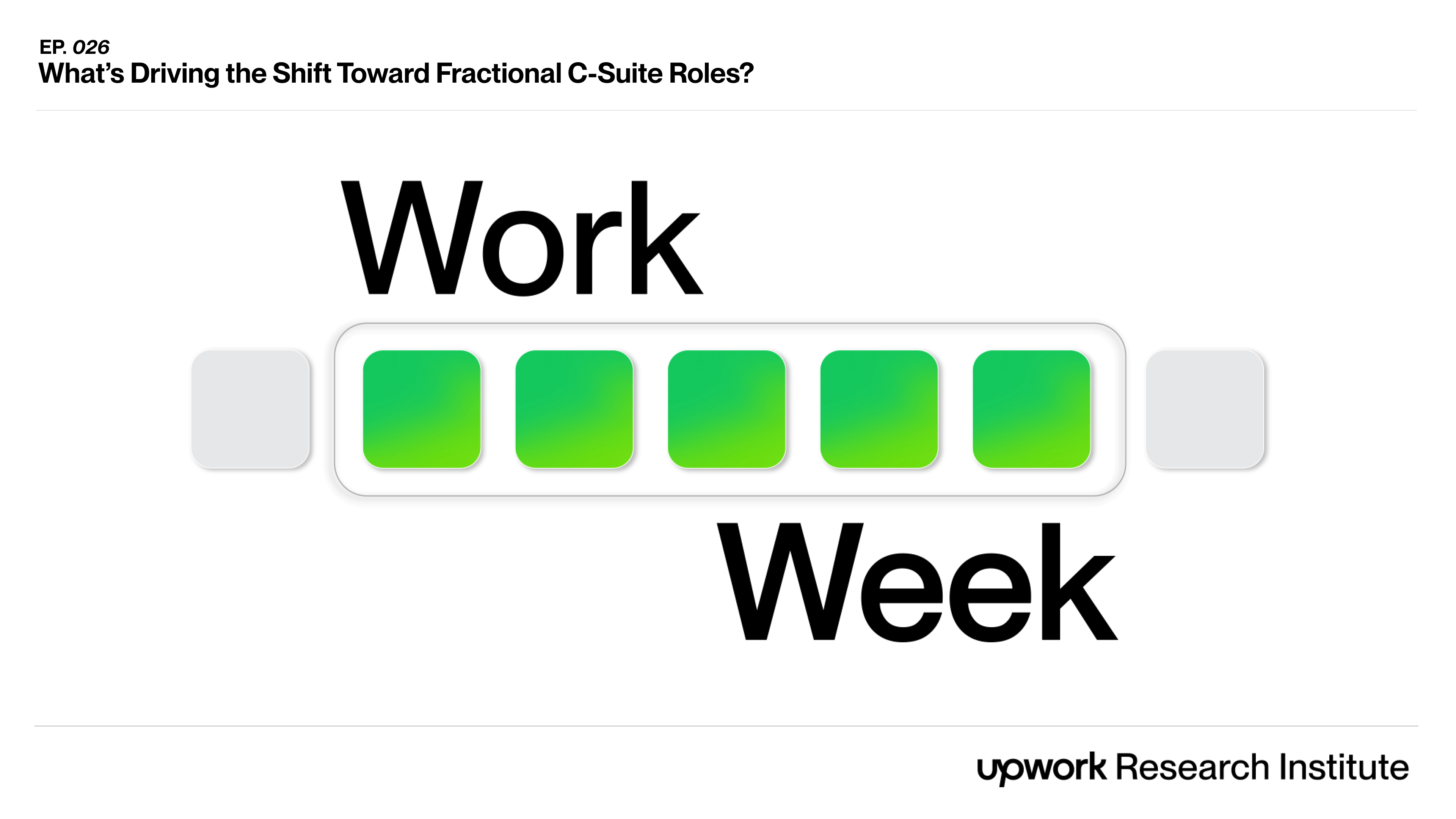
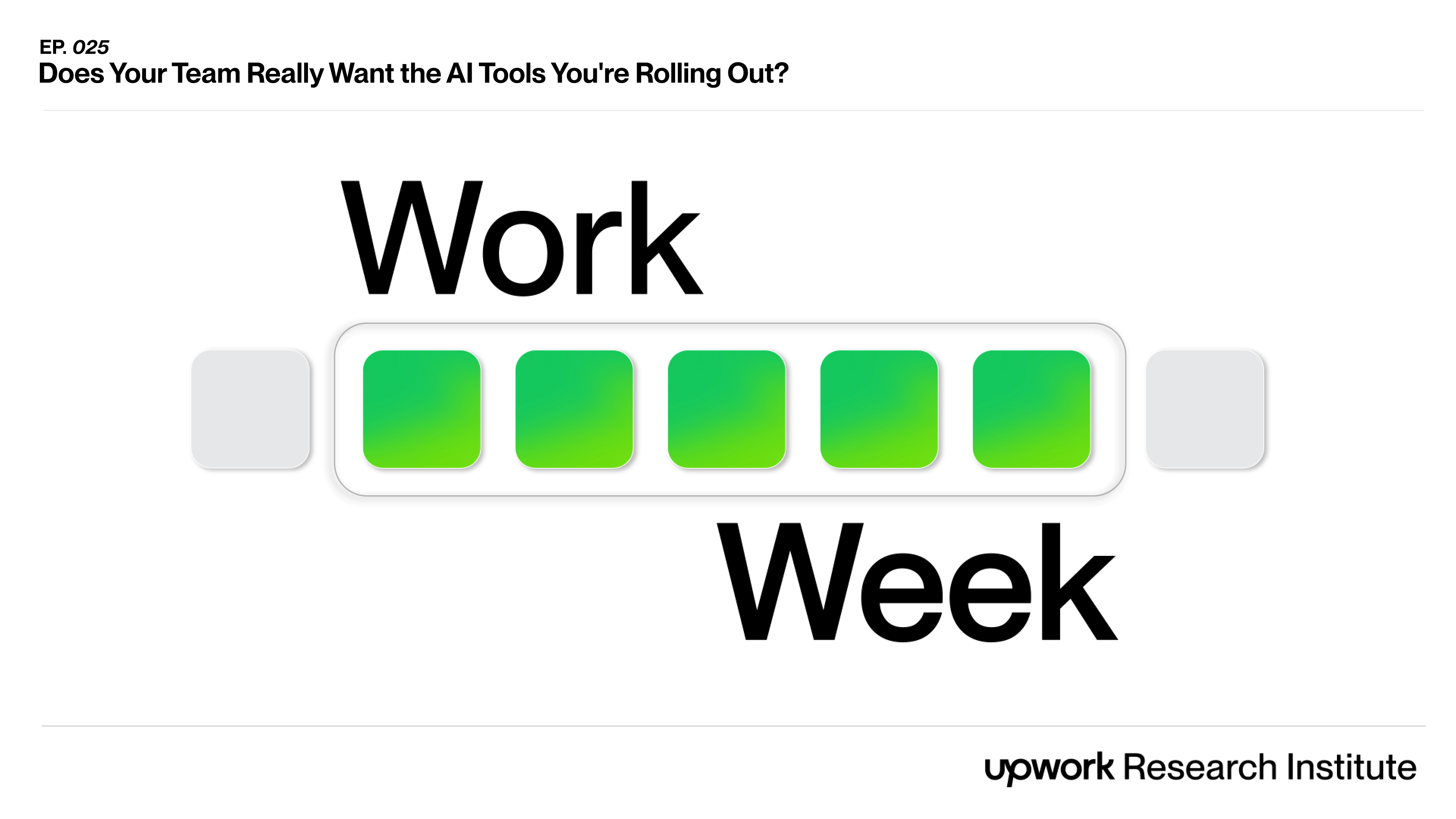
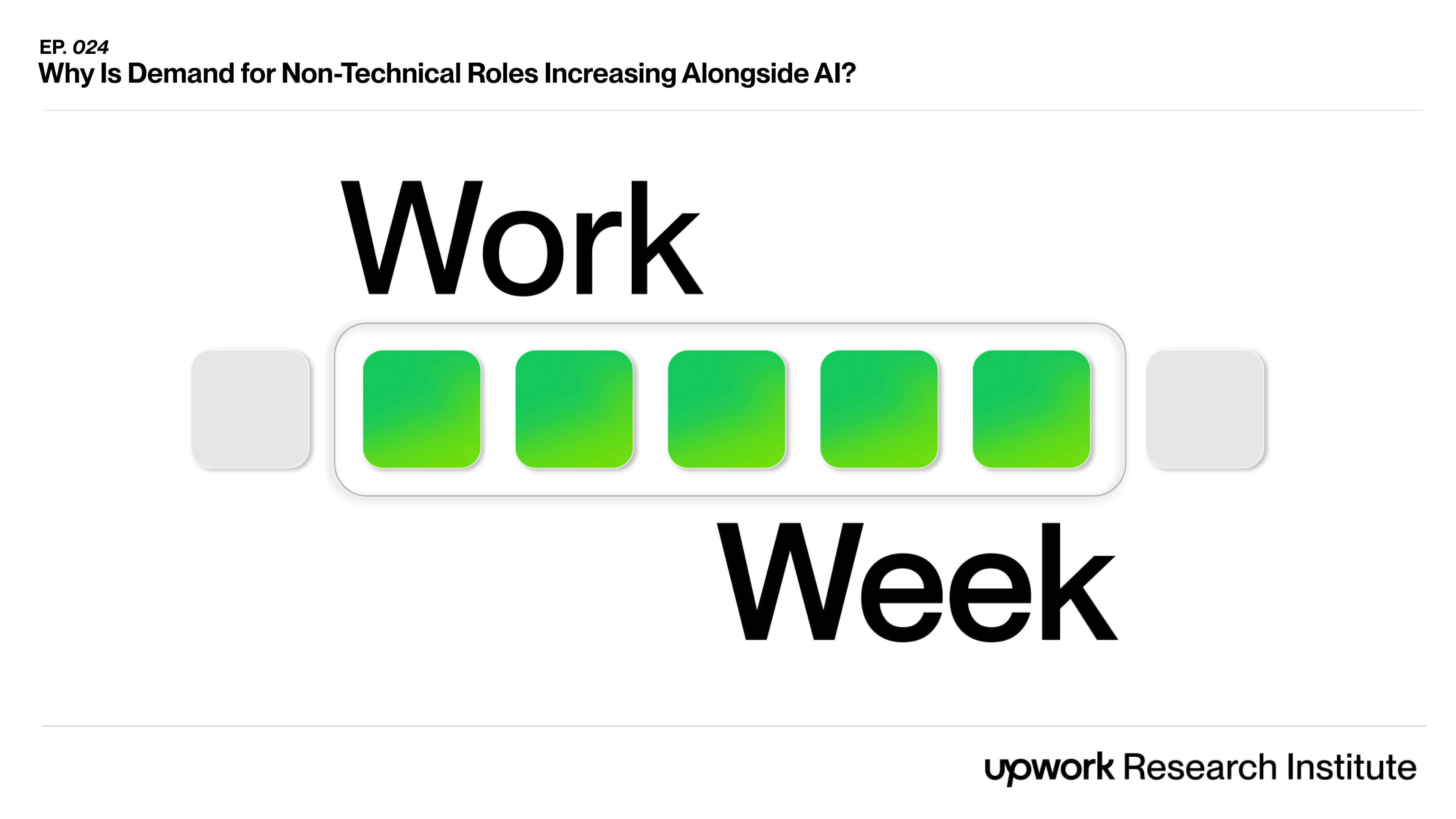
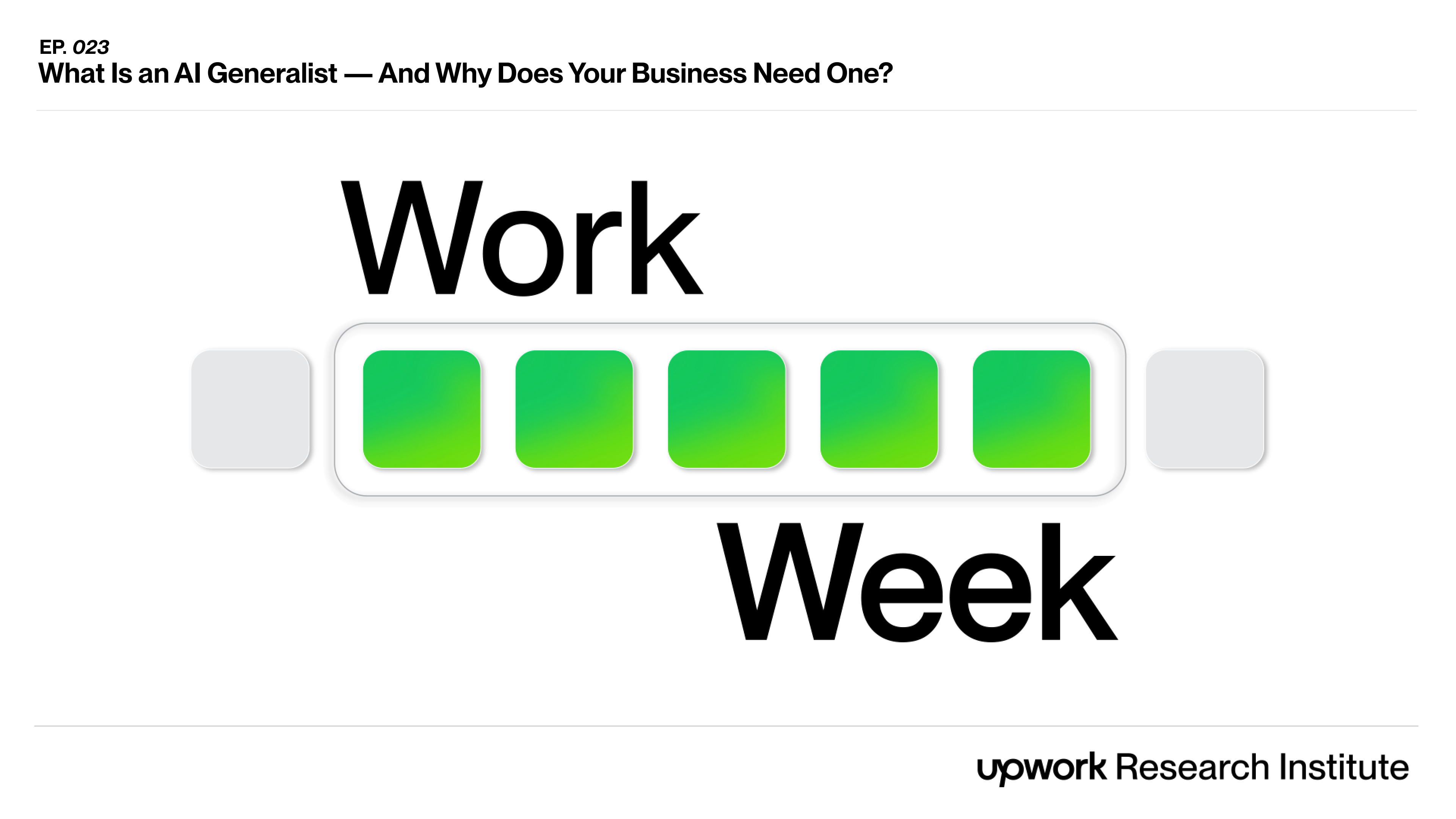
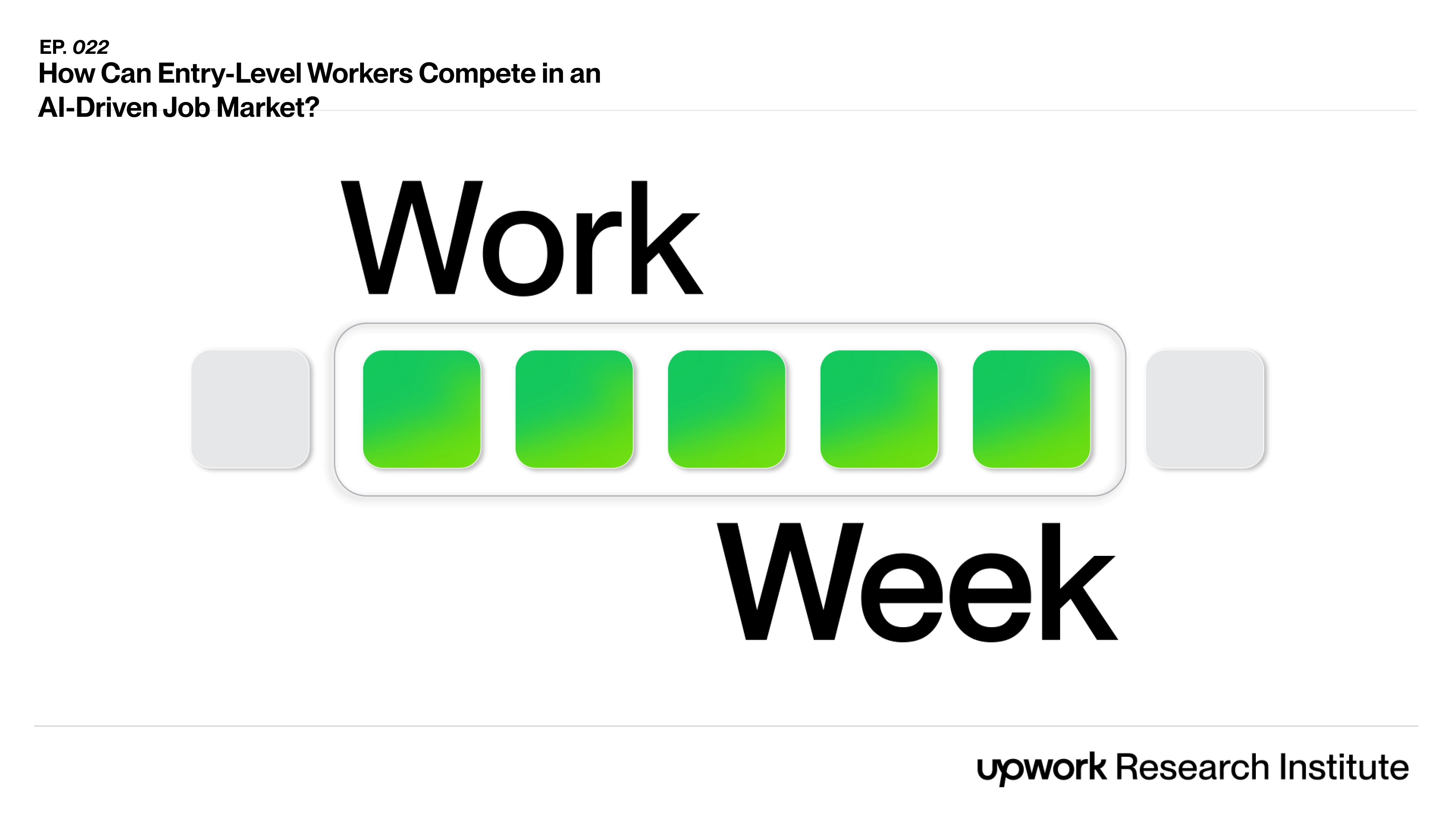

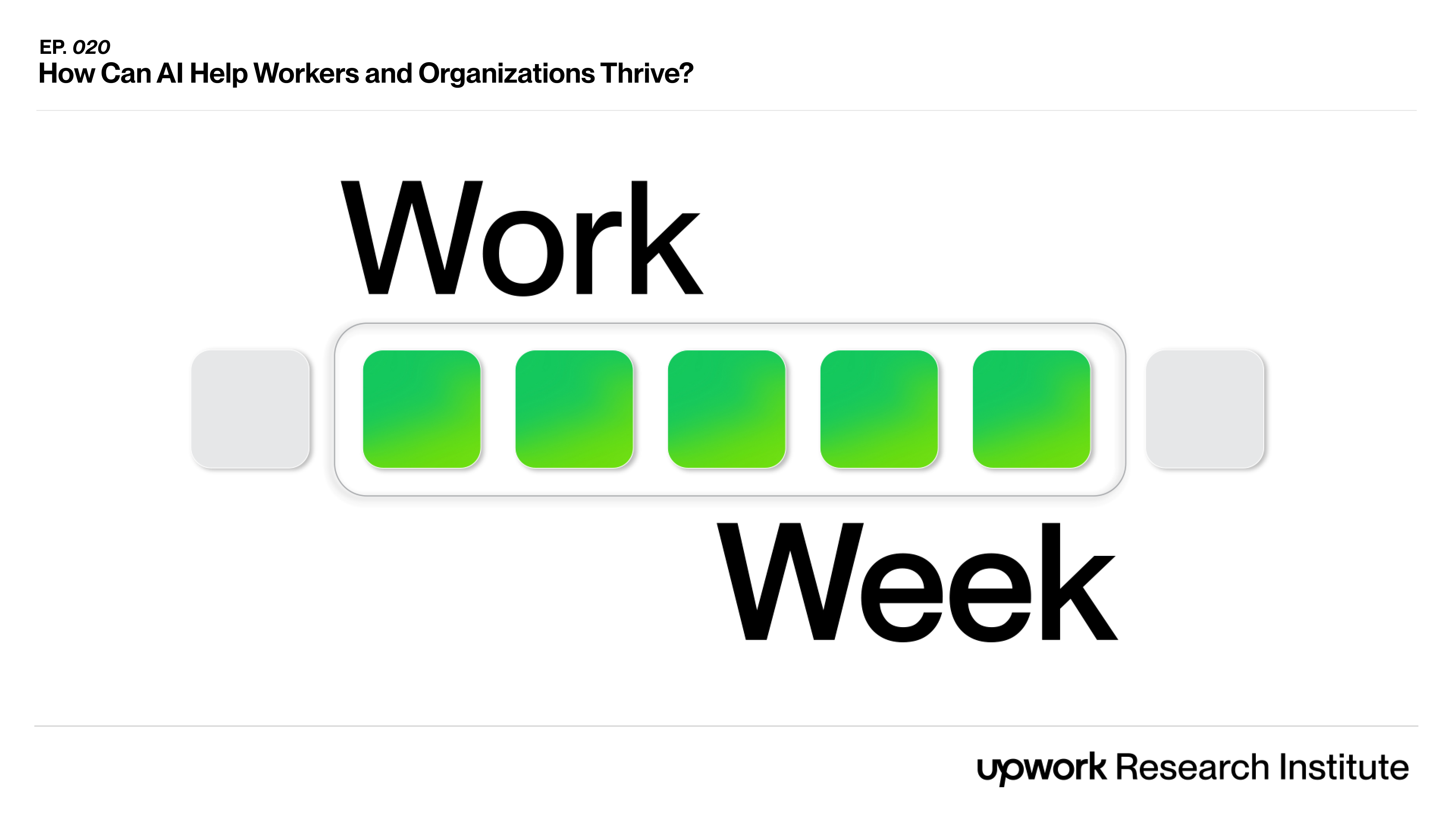
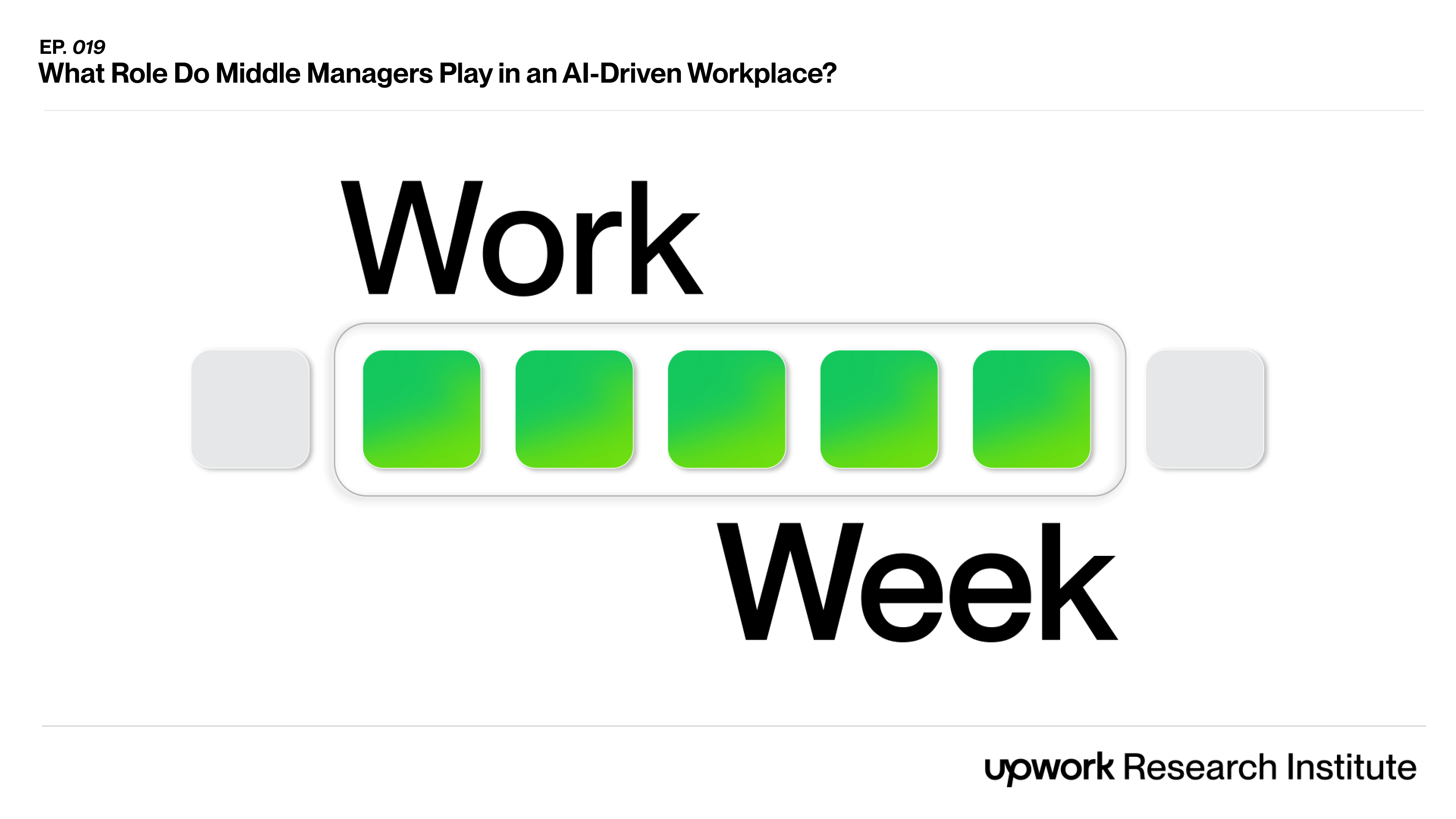
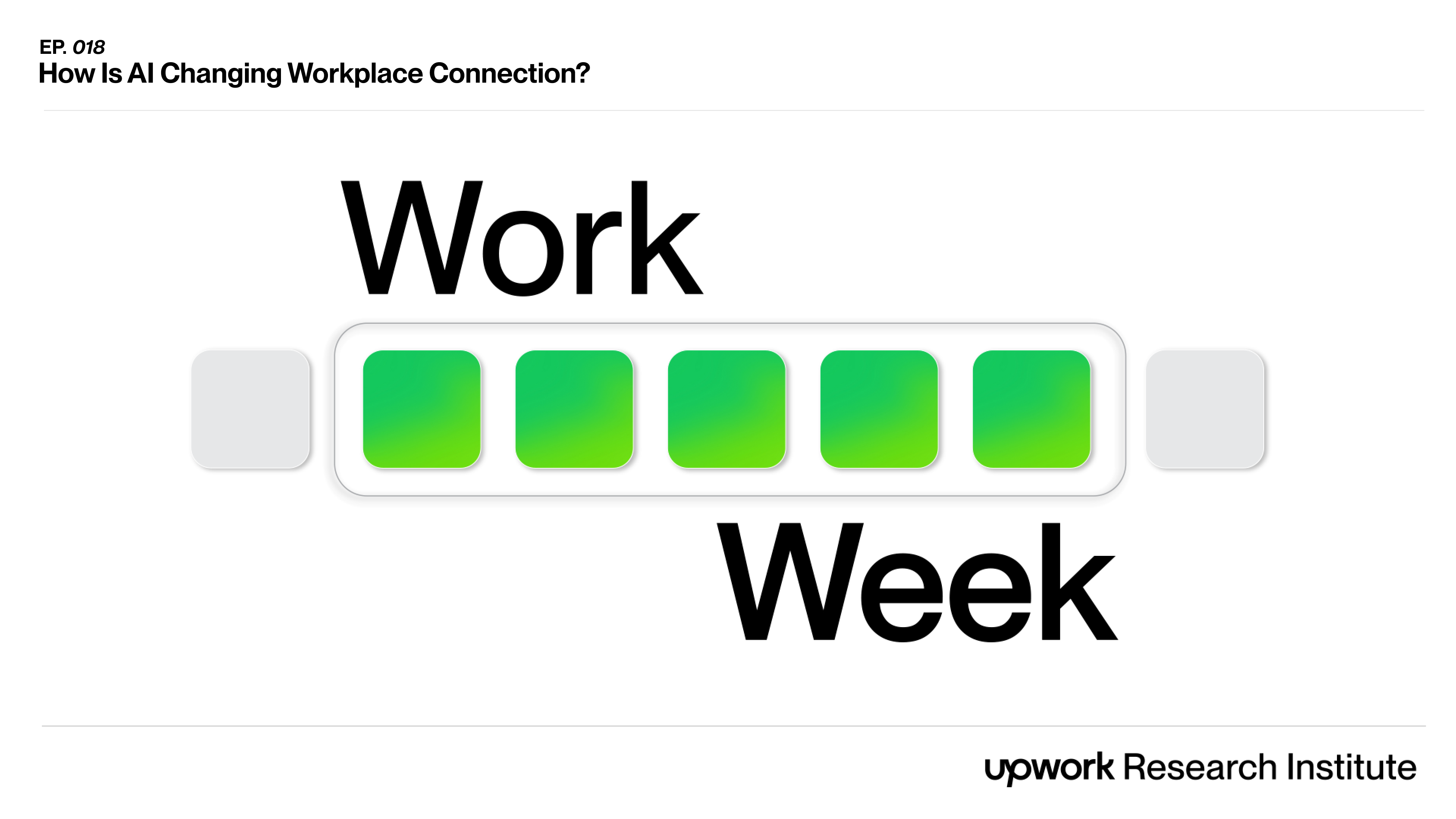

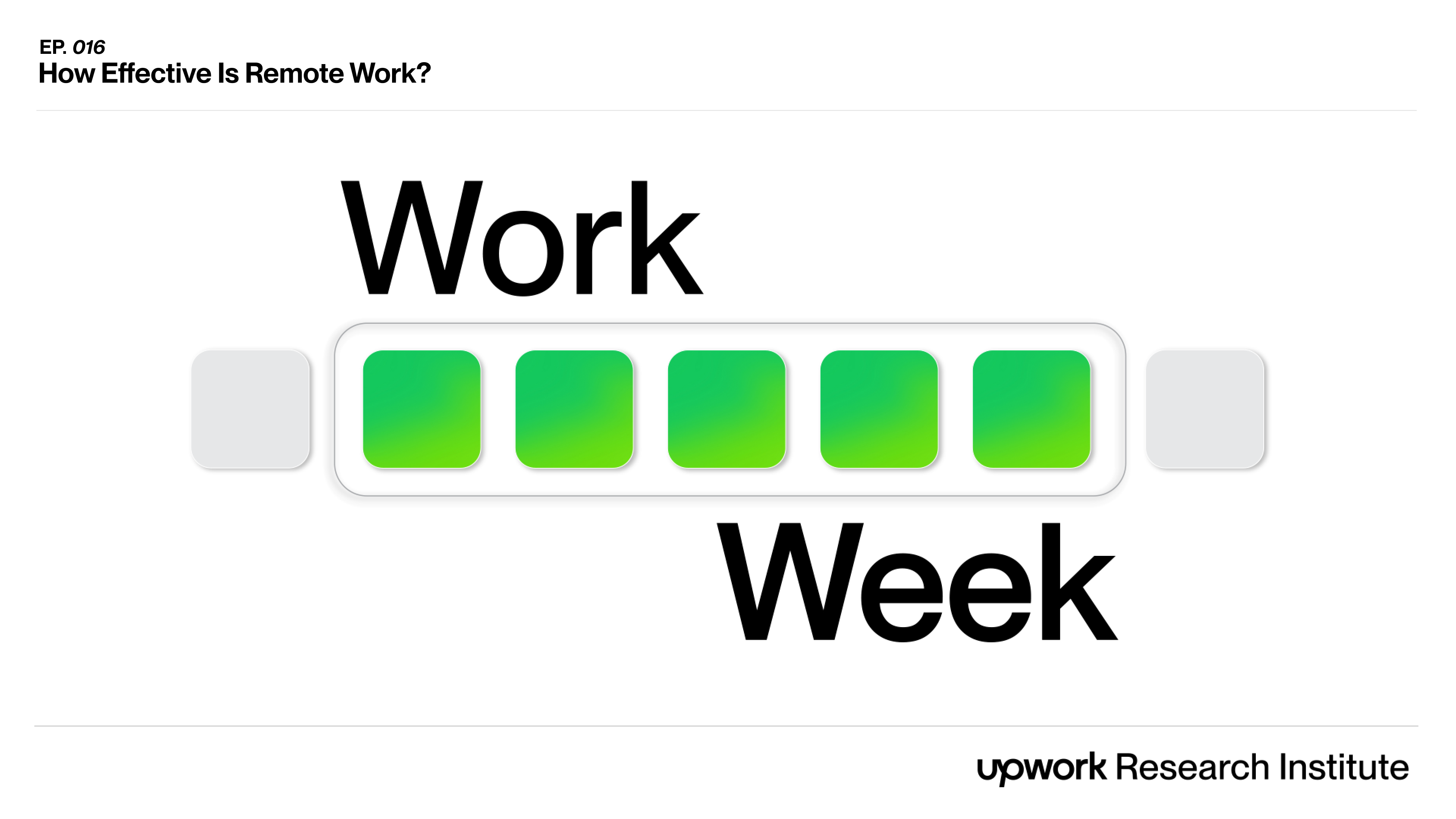
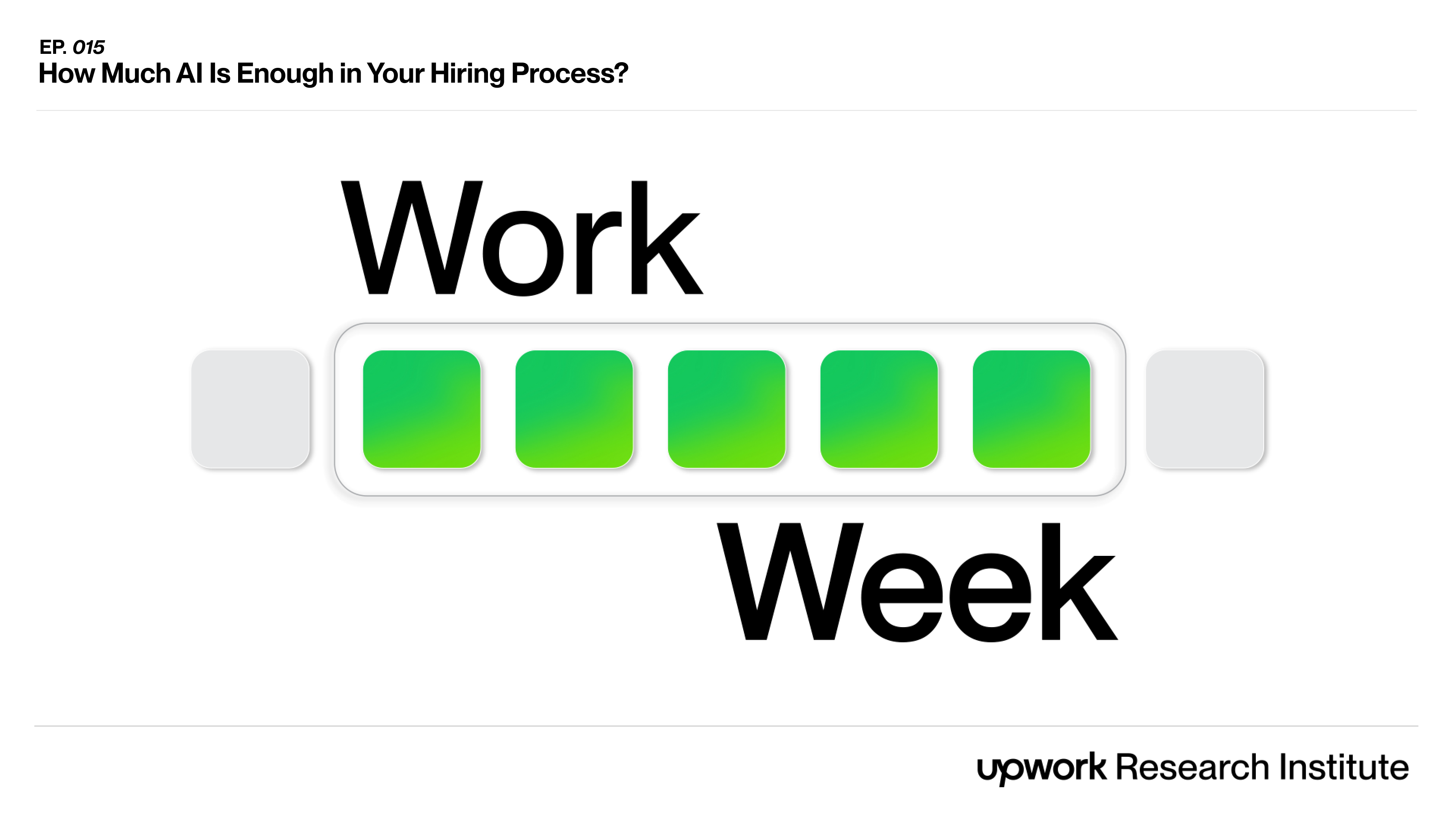

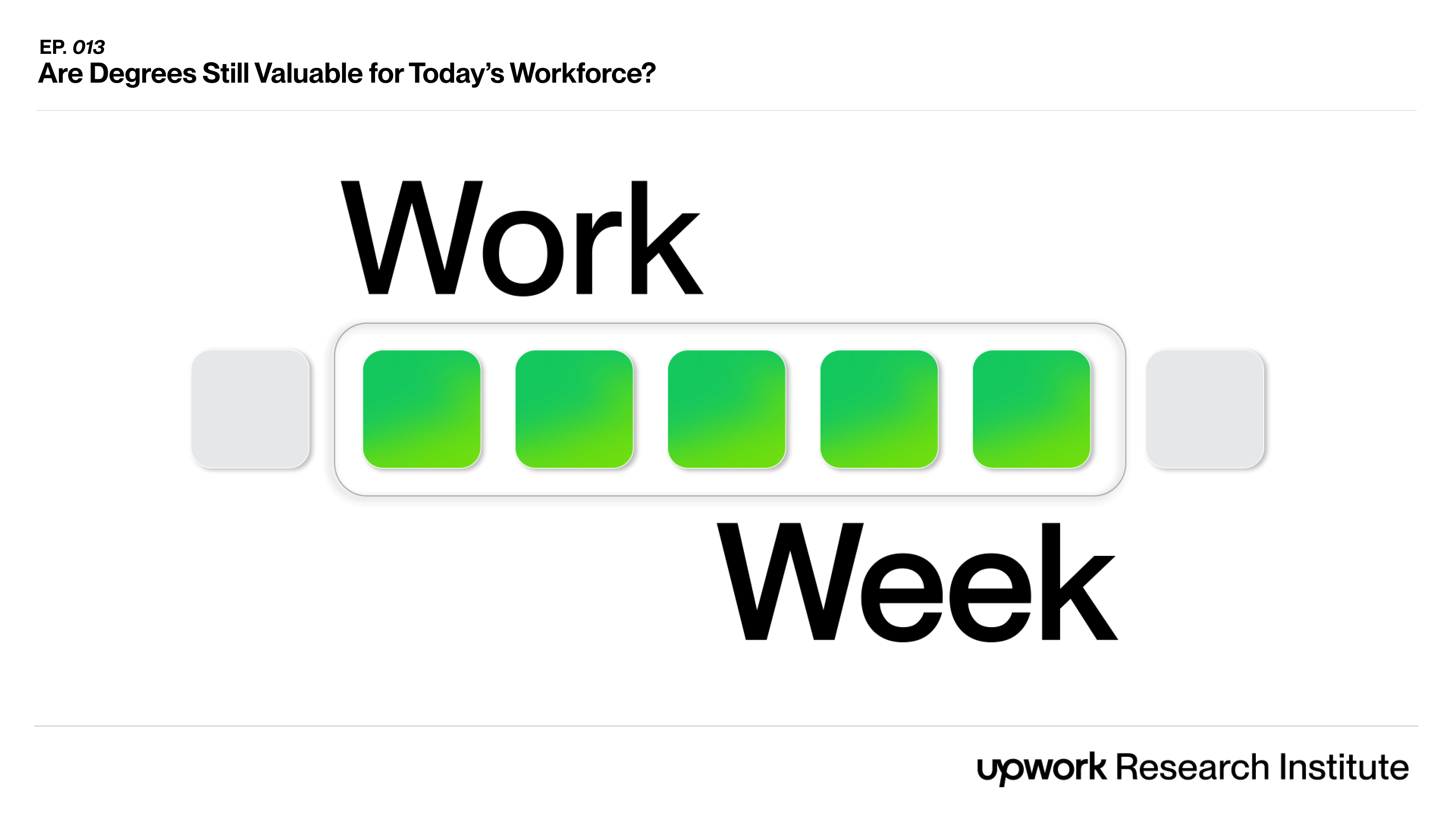
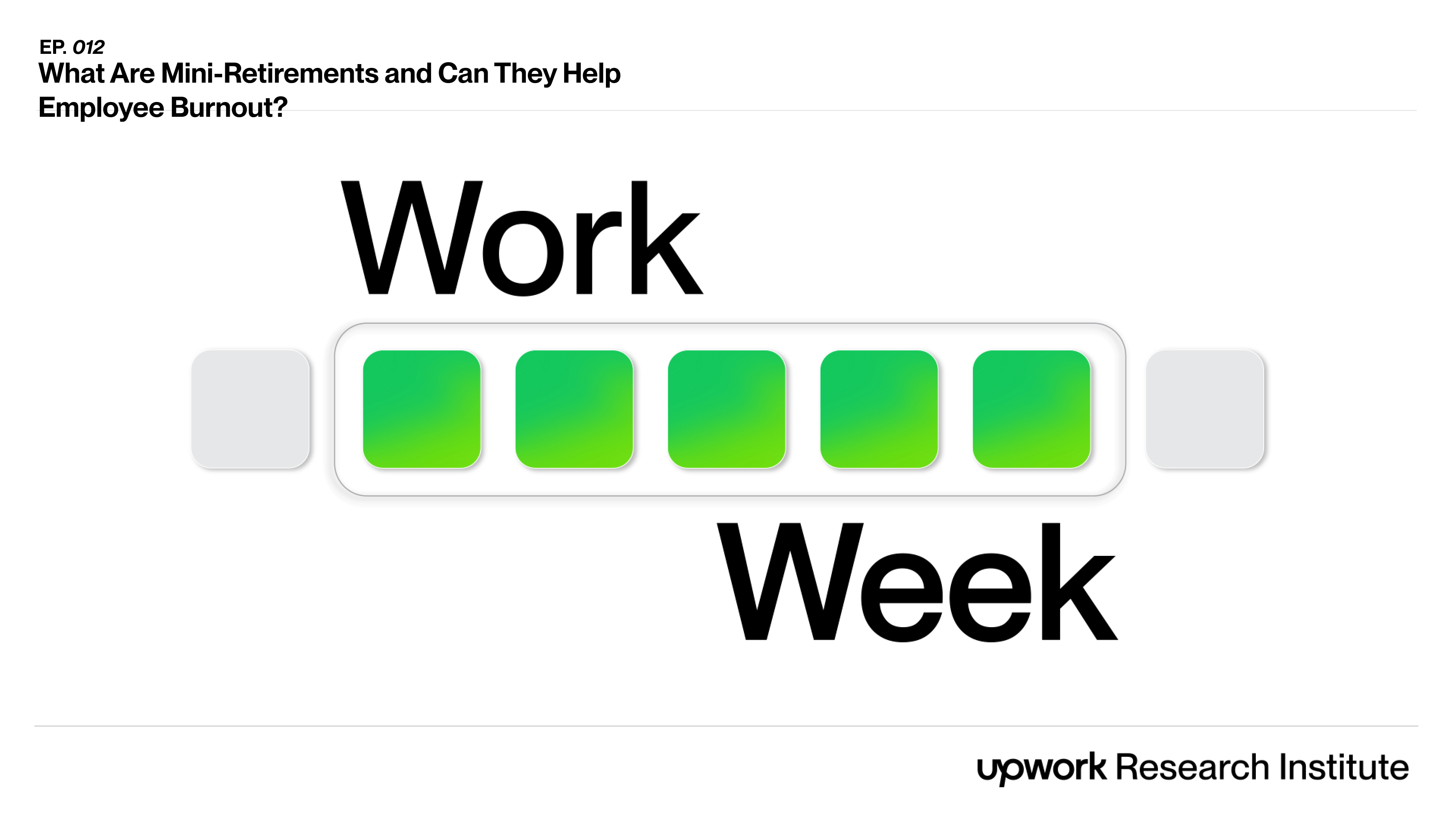
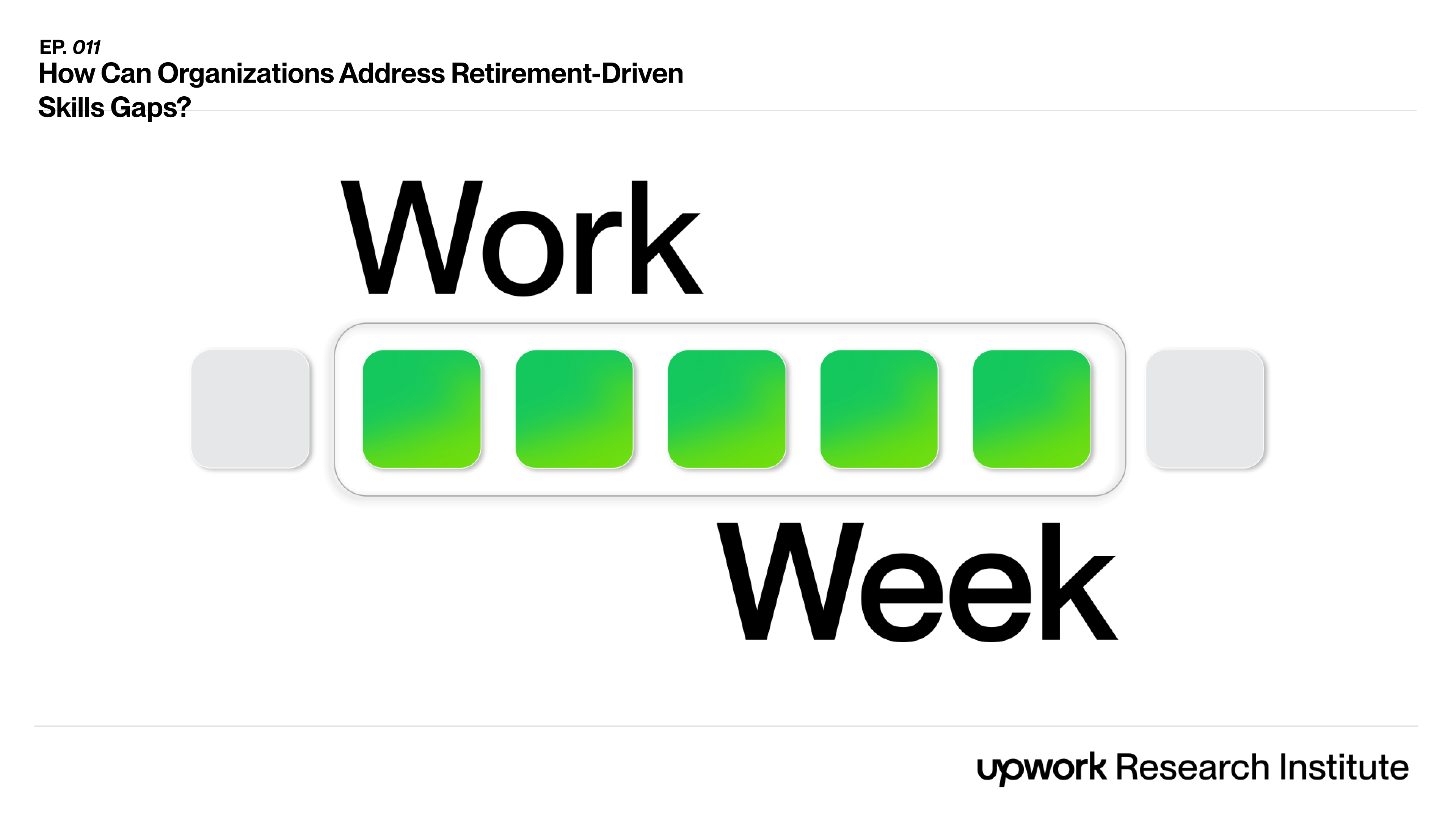
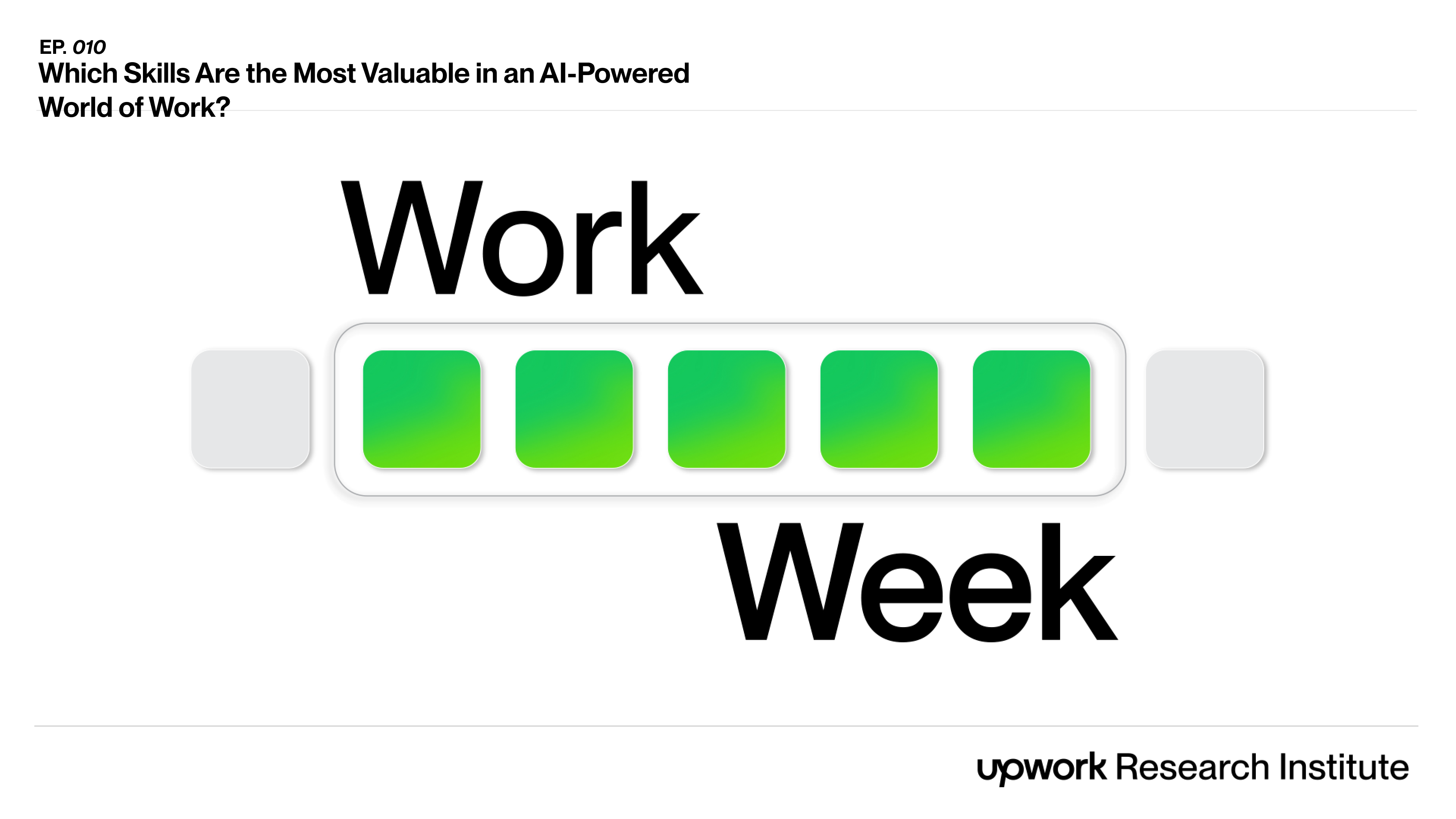
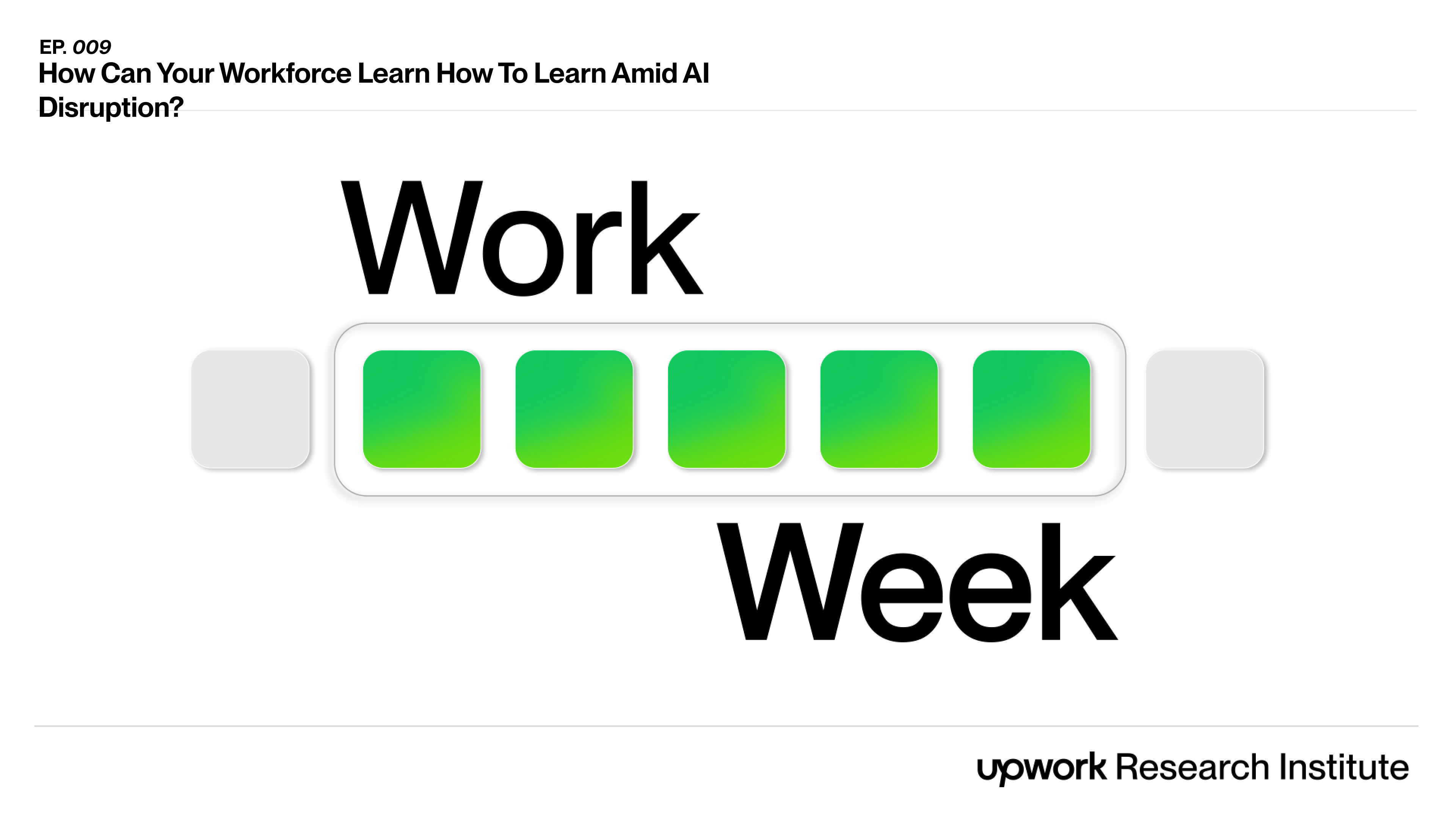
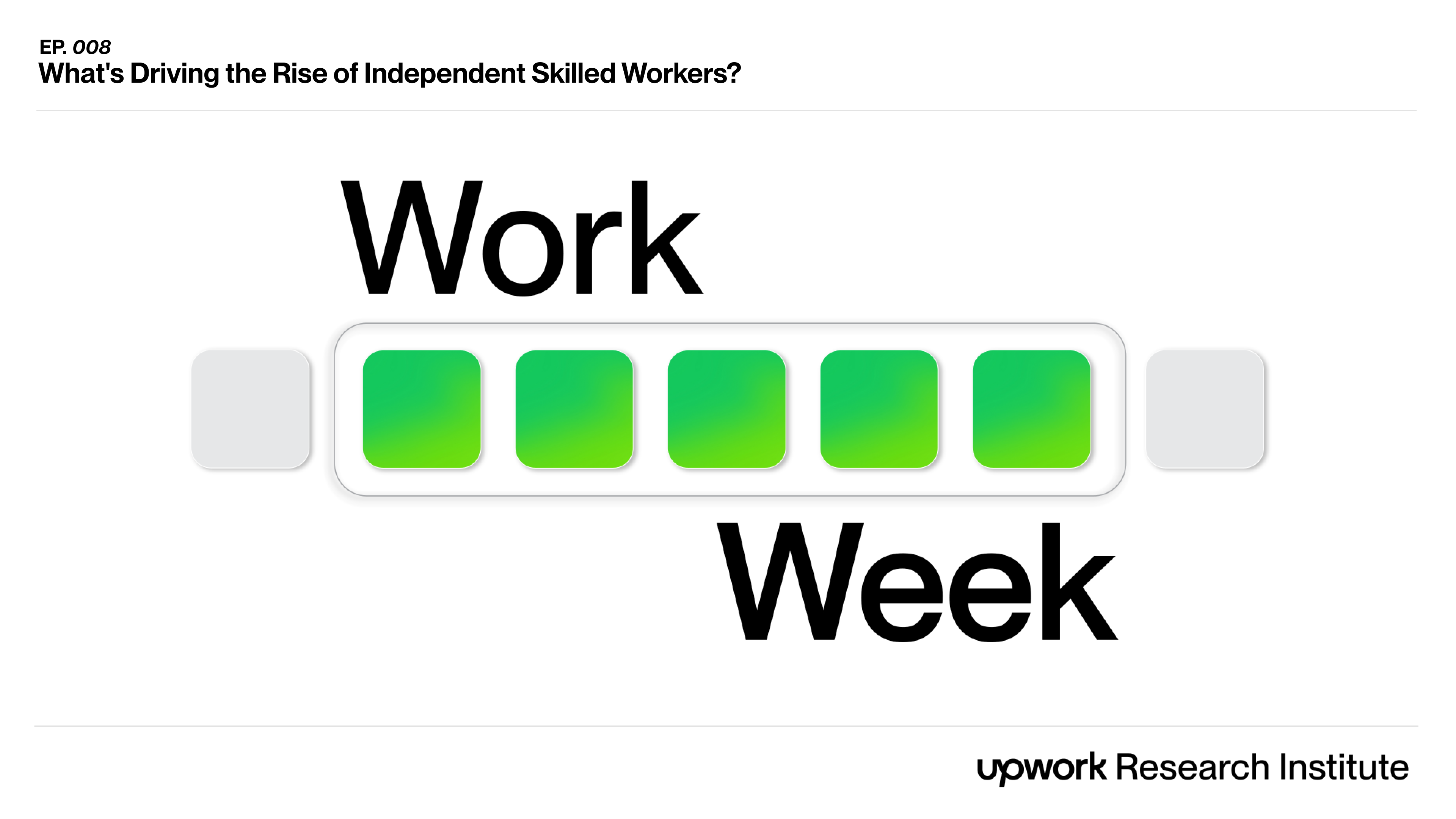
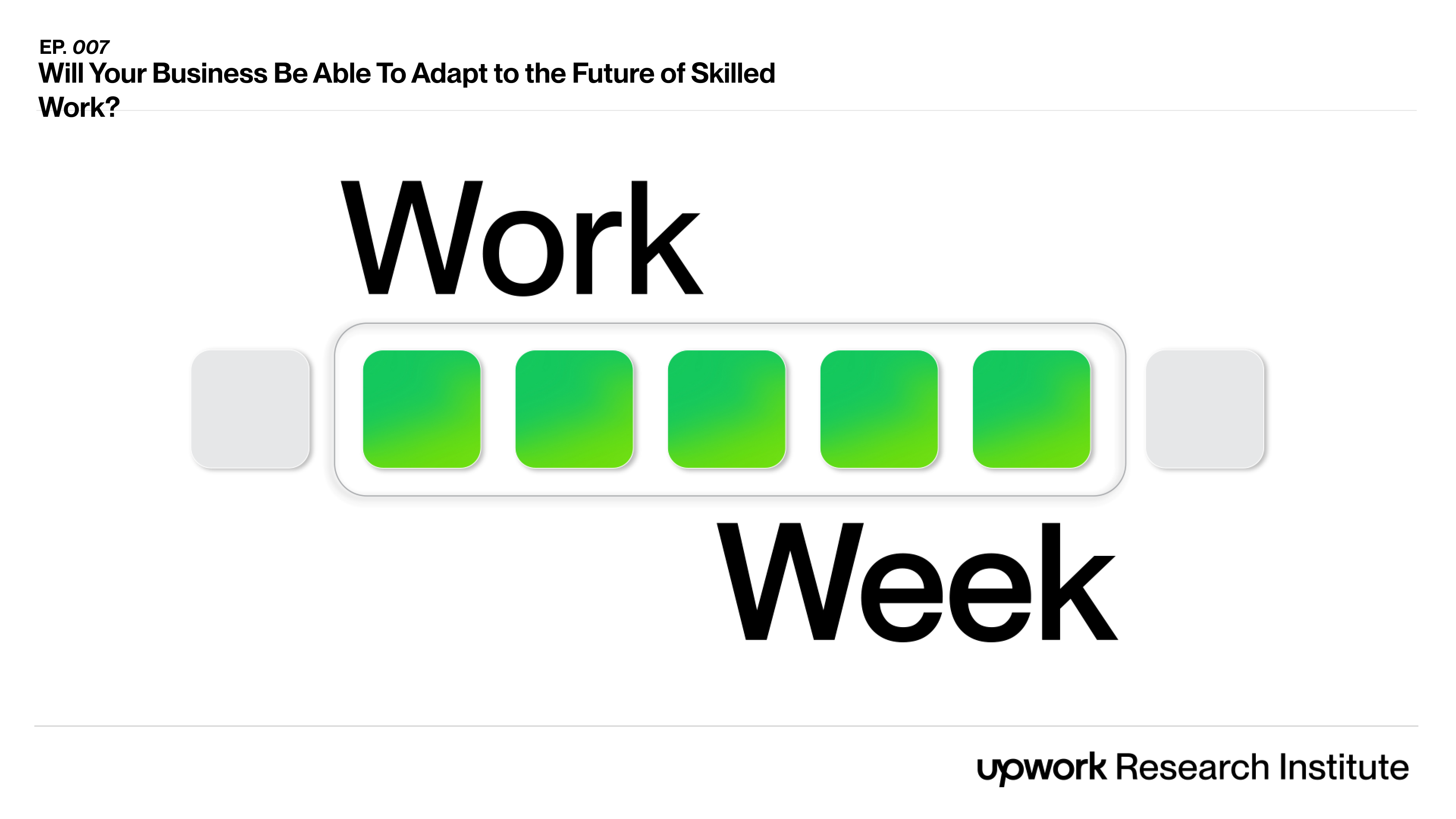
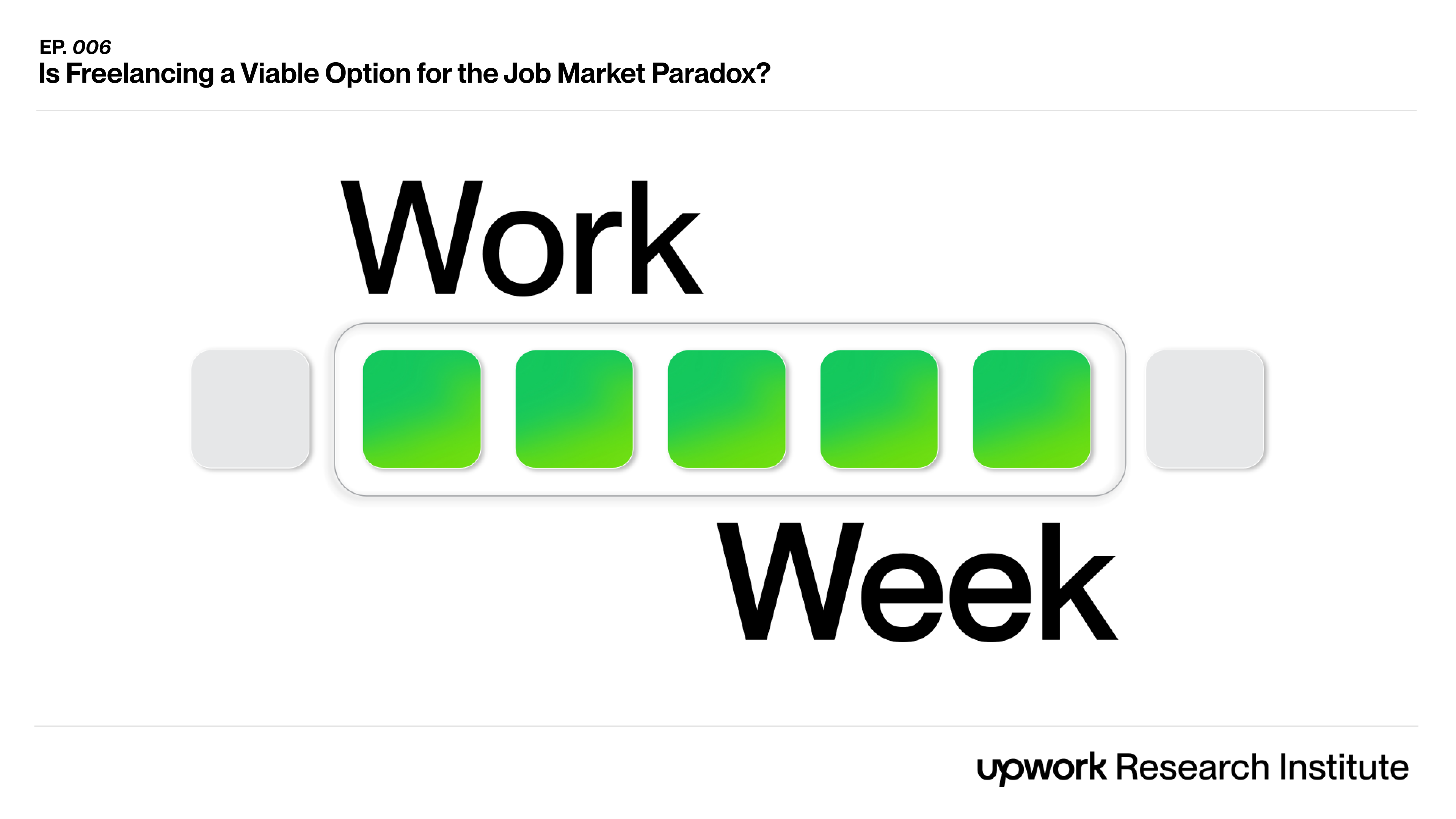
.png)
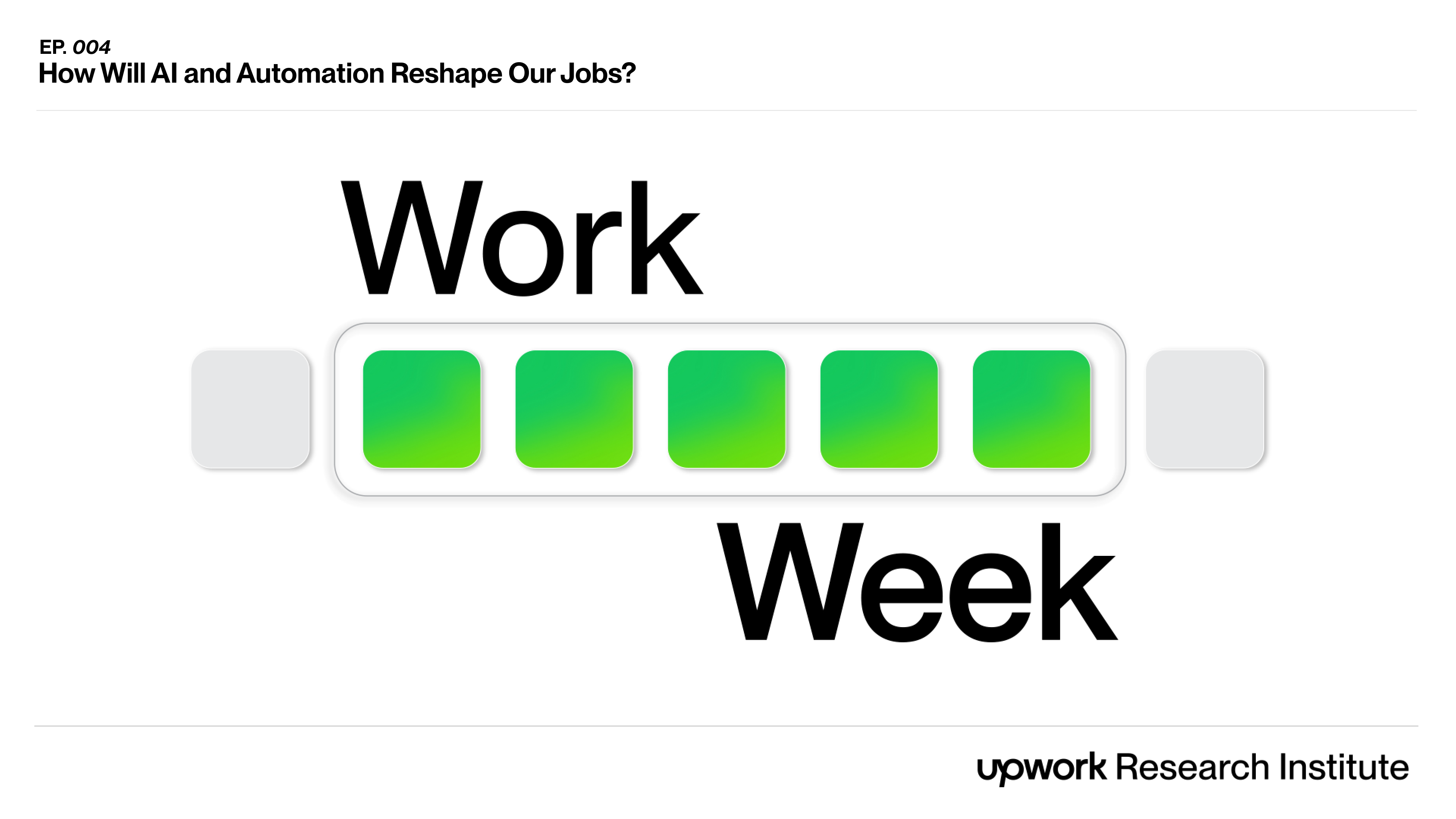

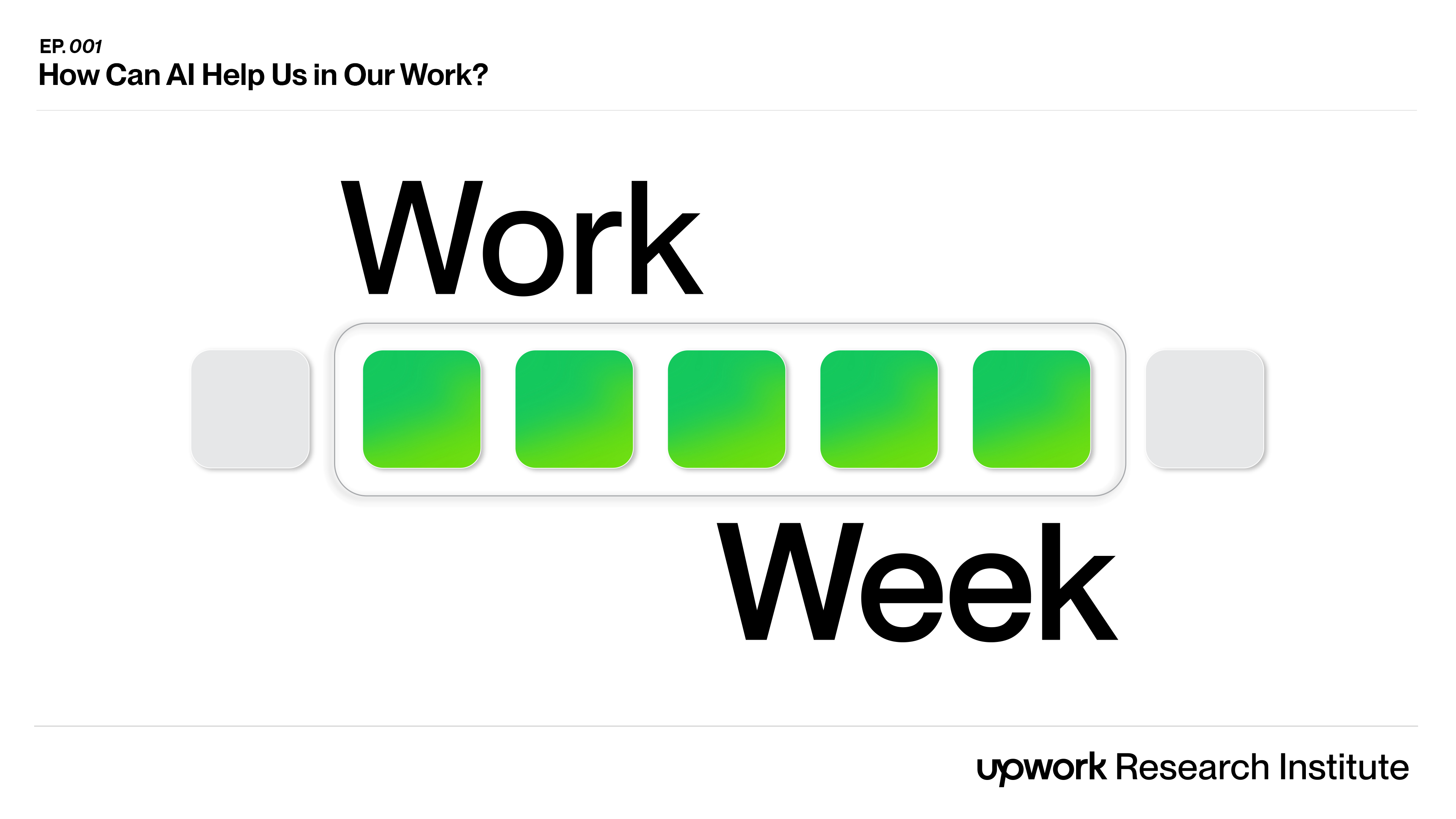
.jpg)